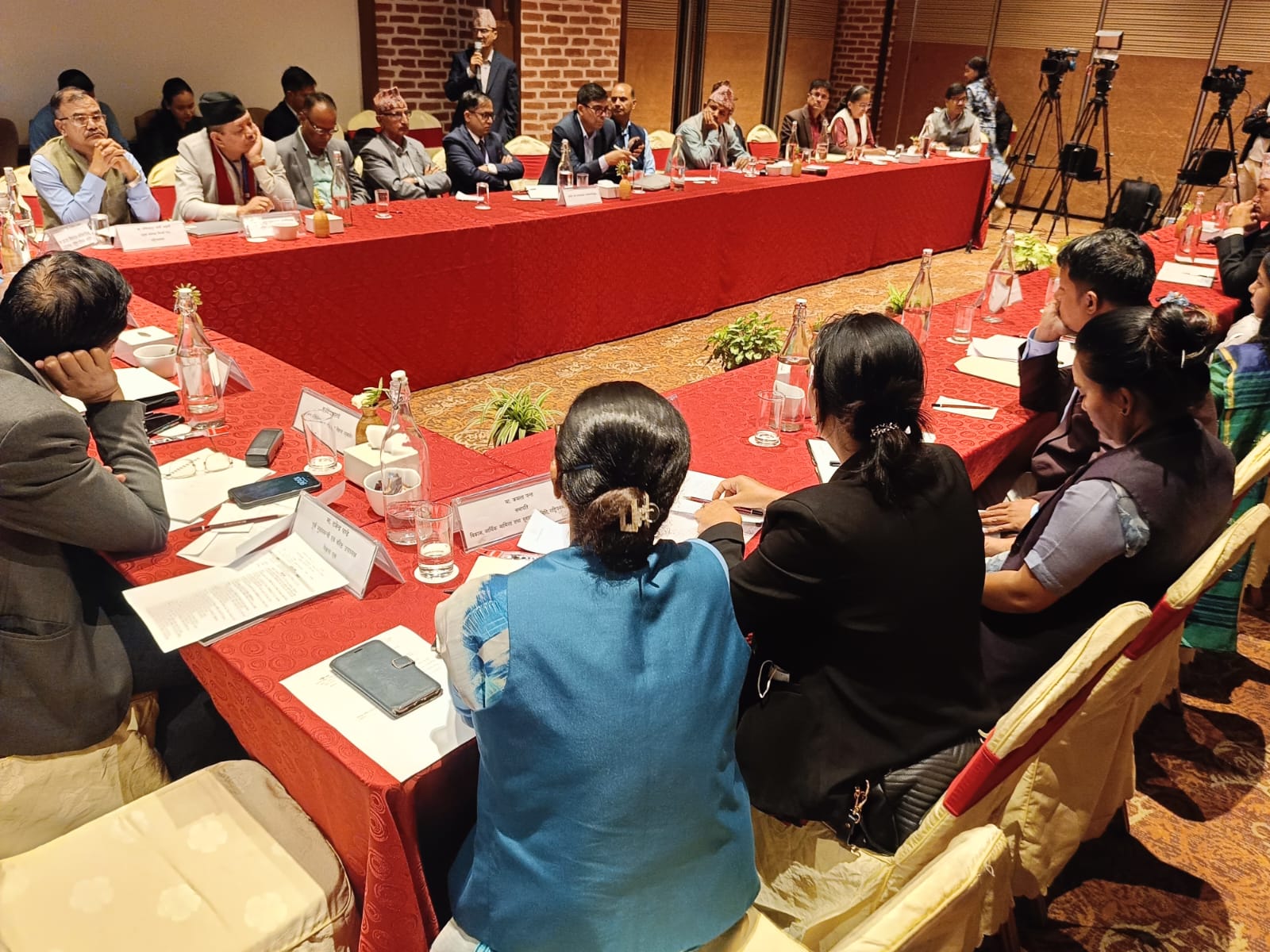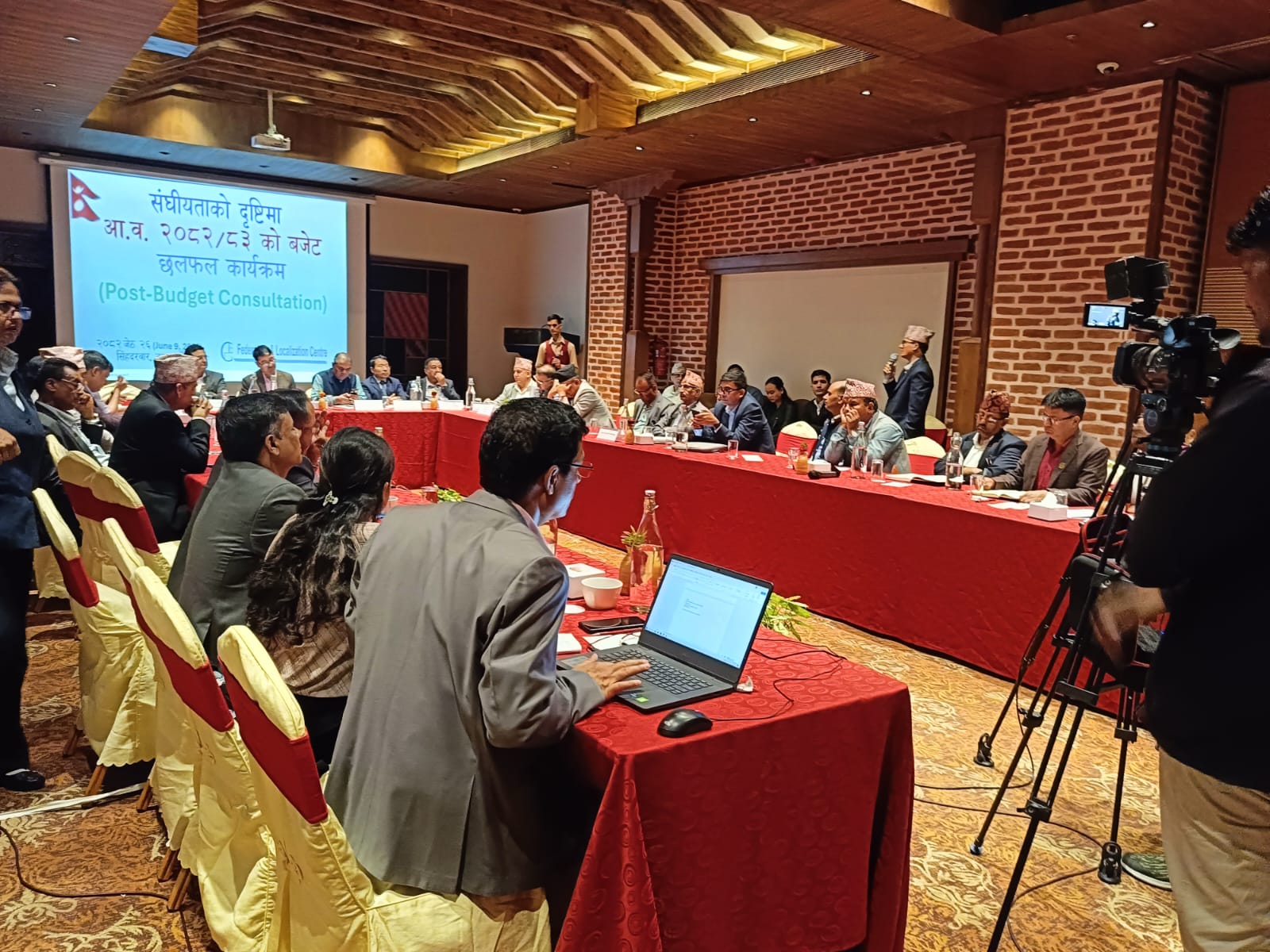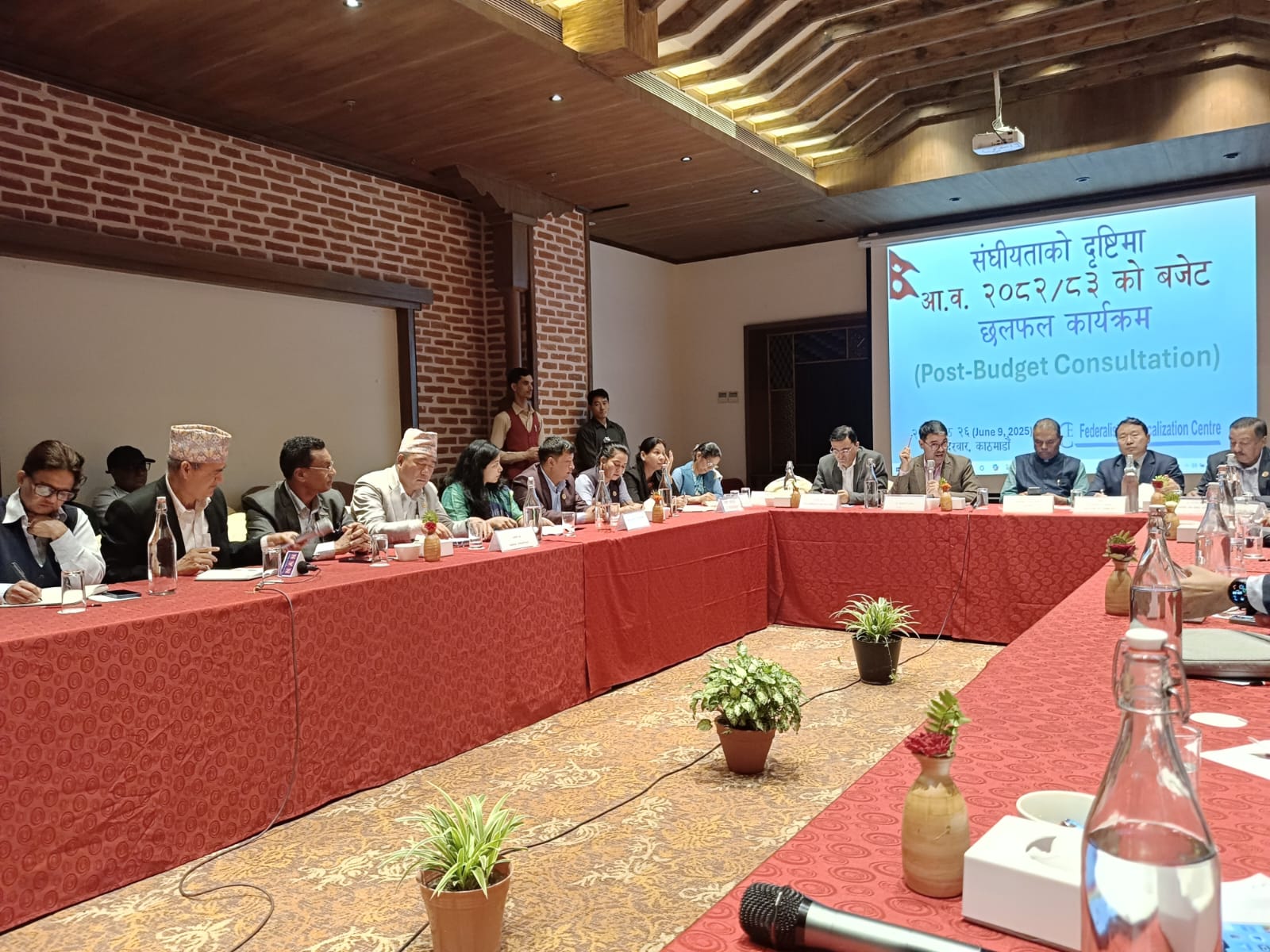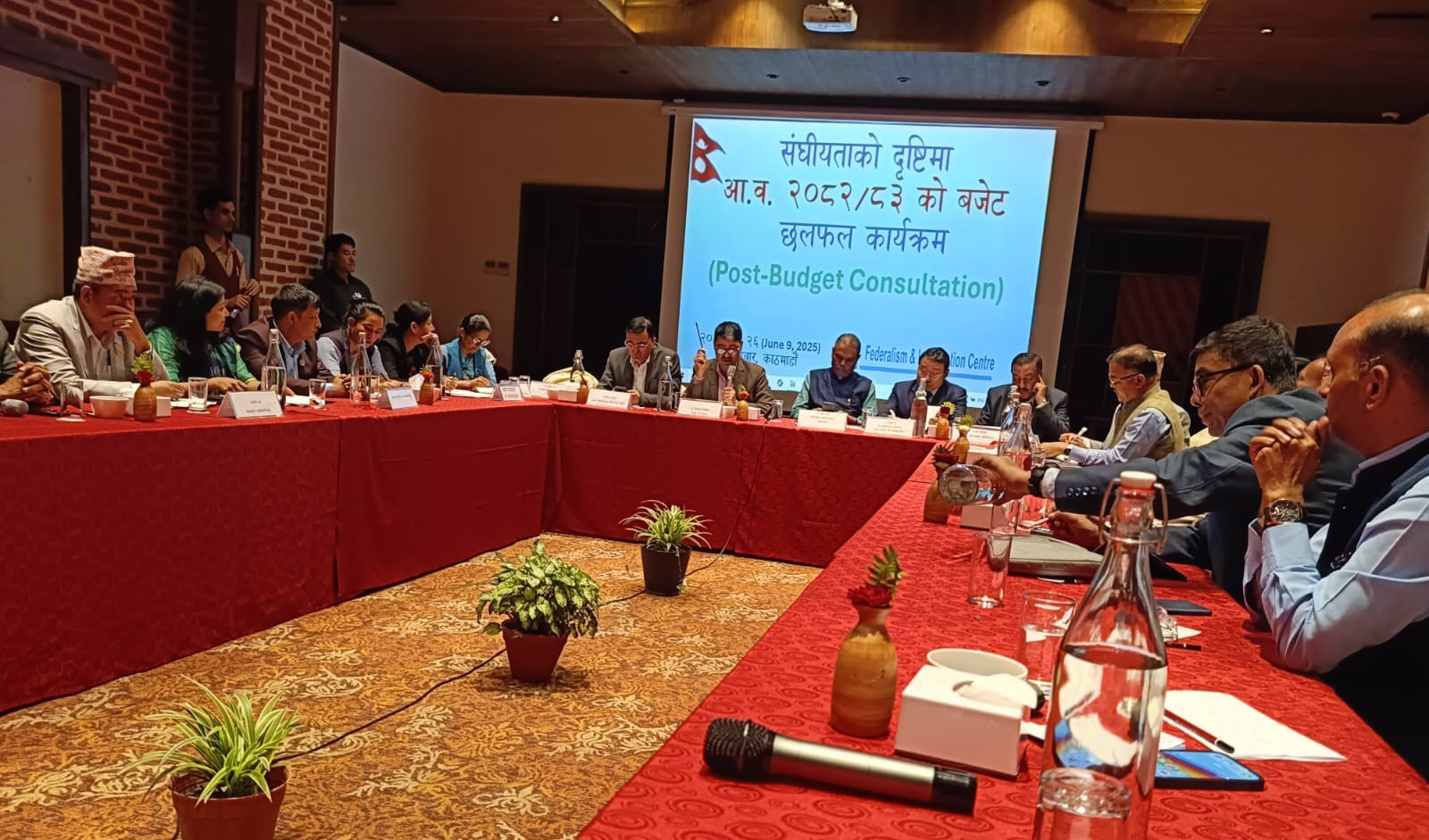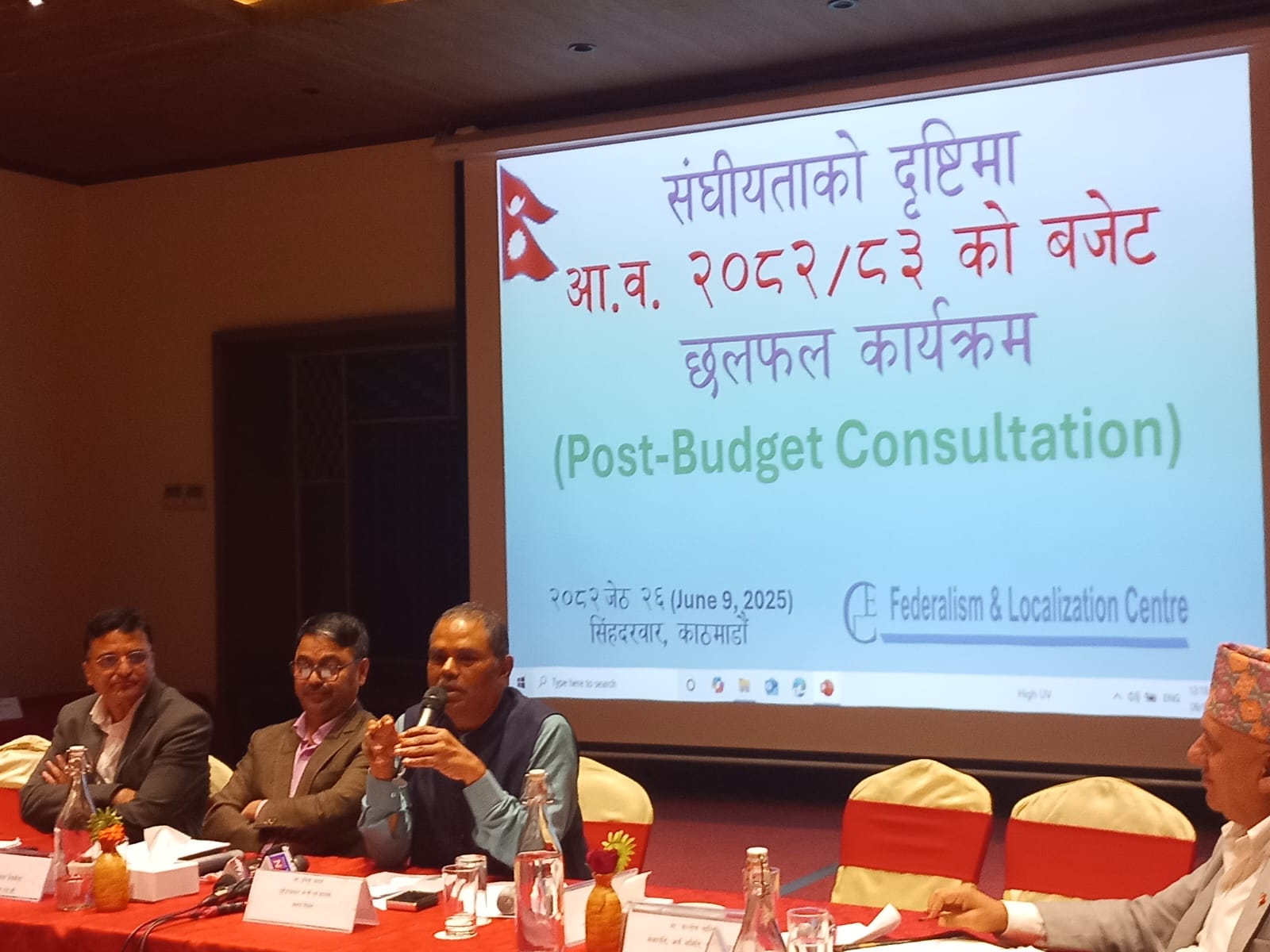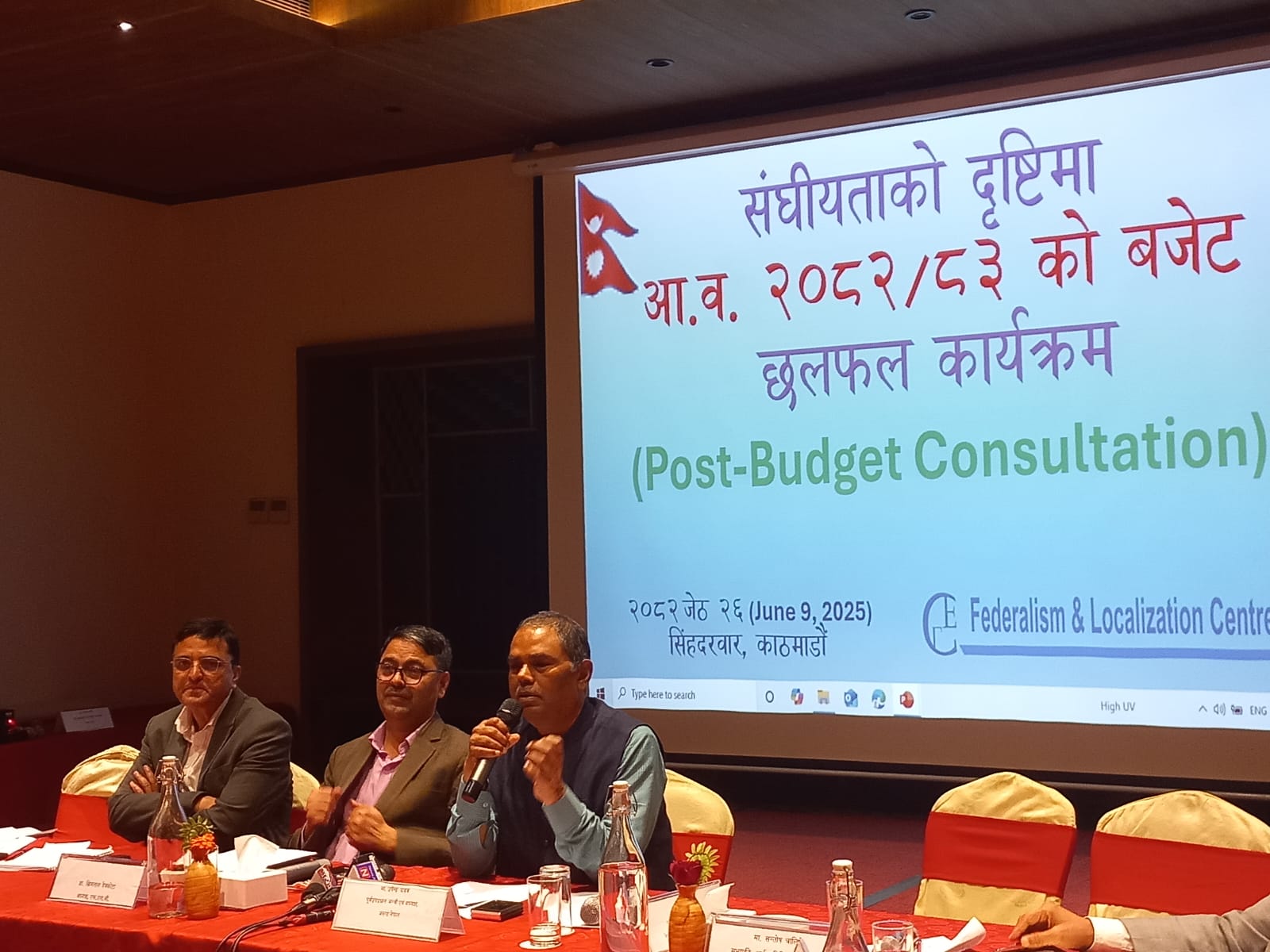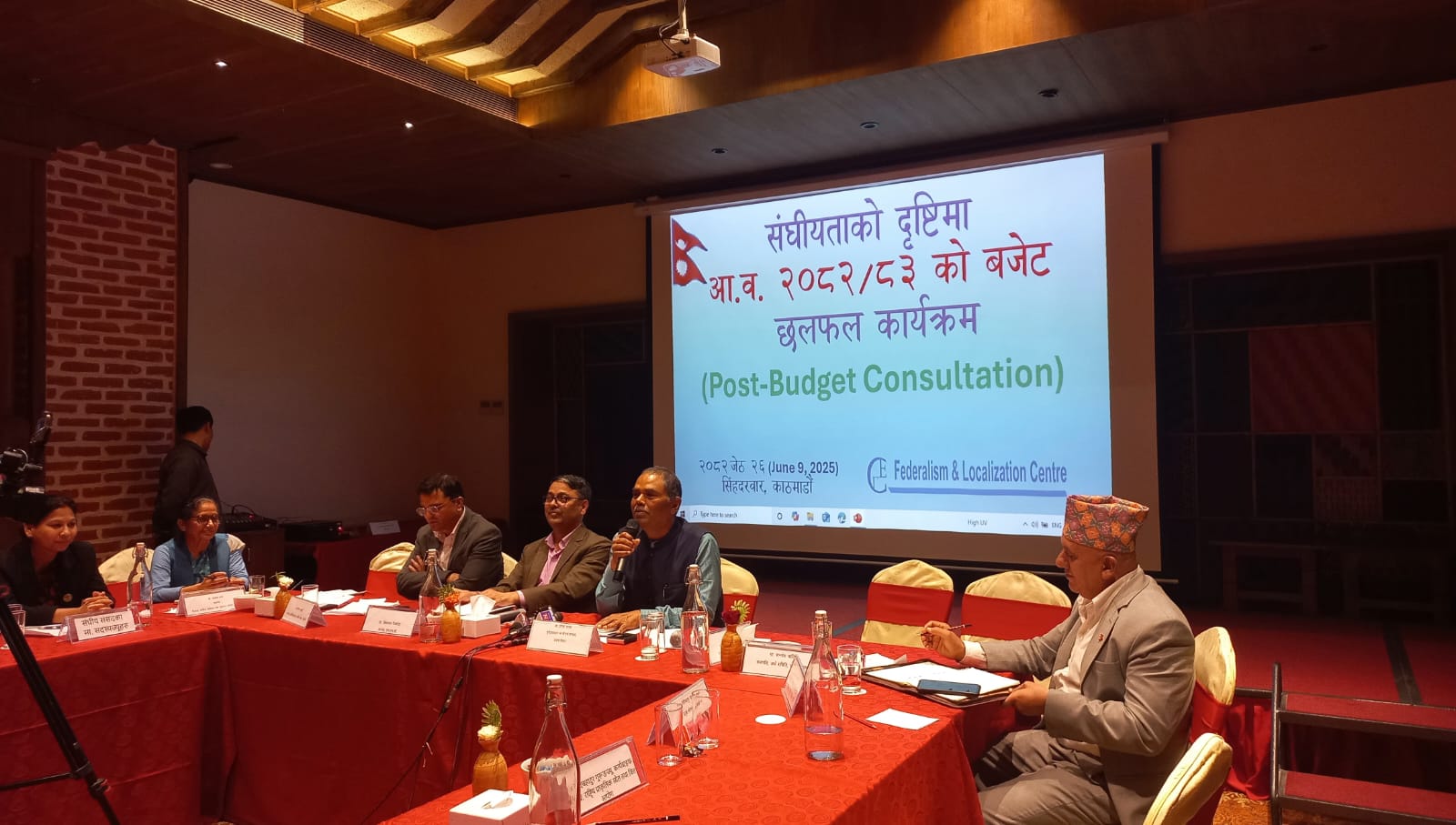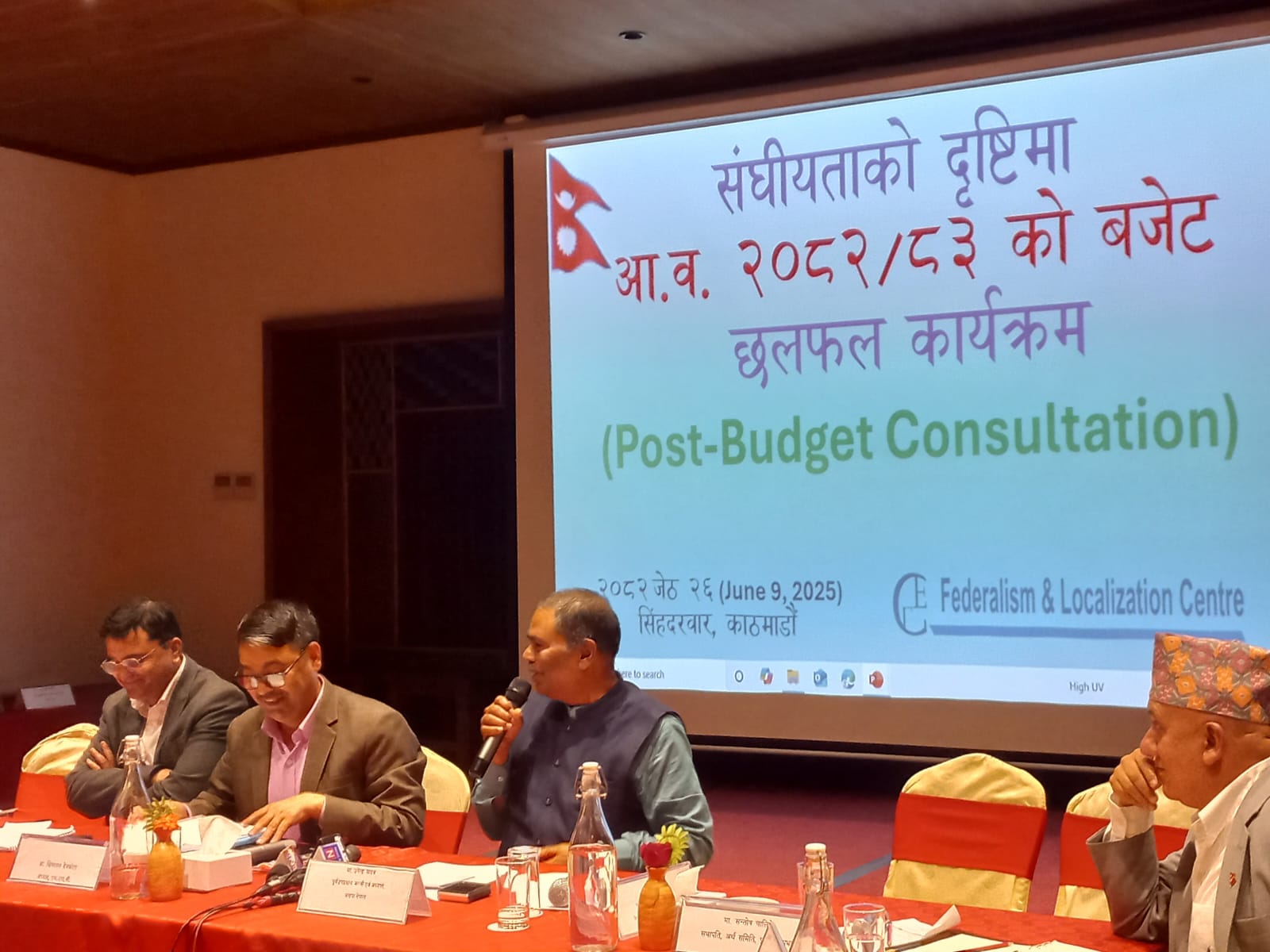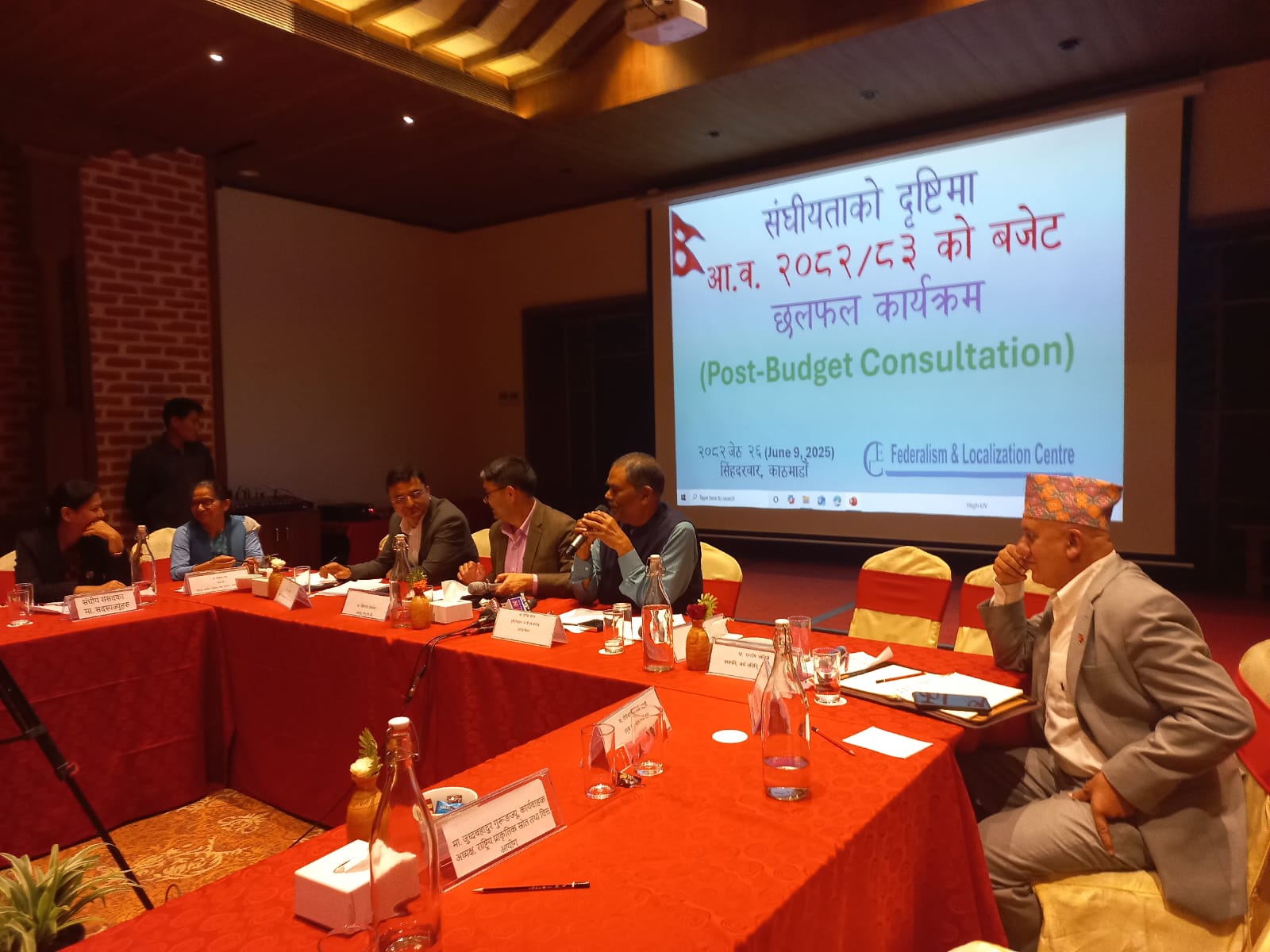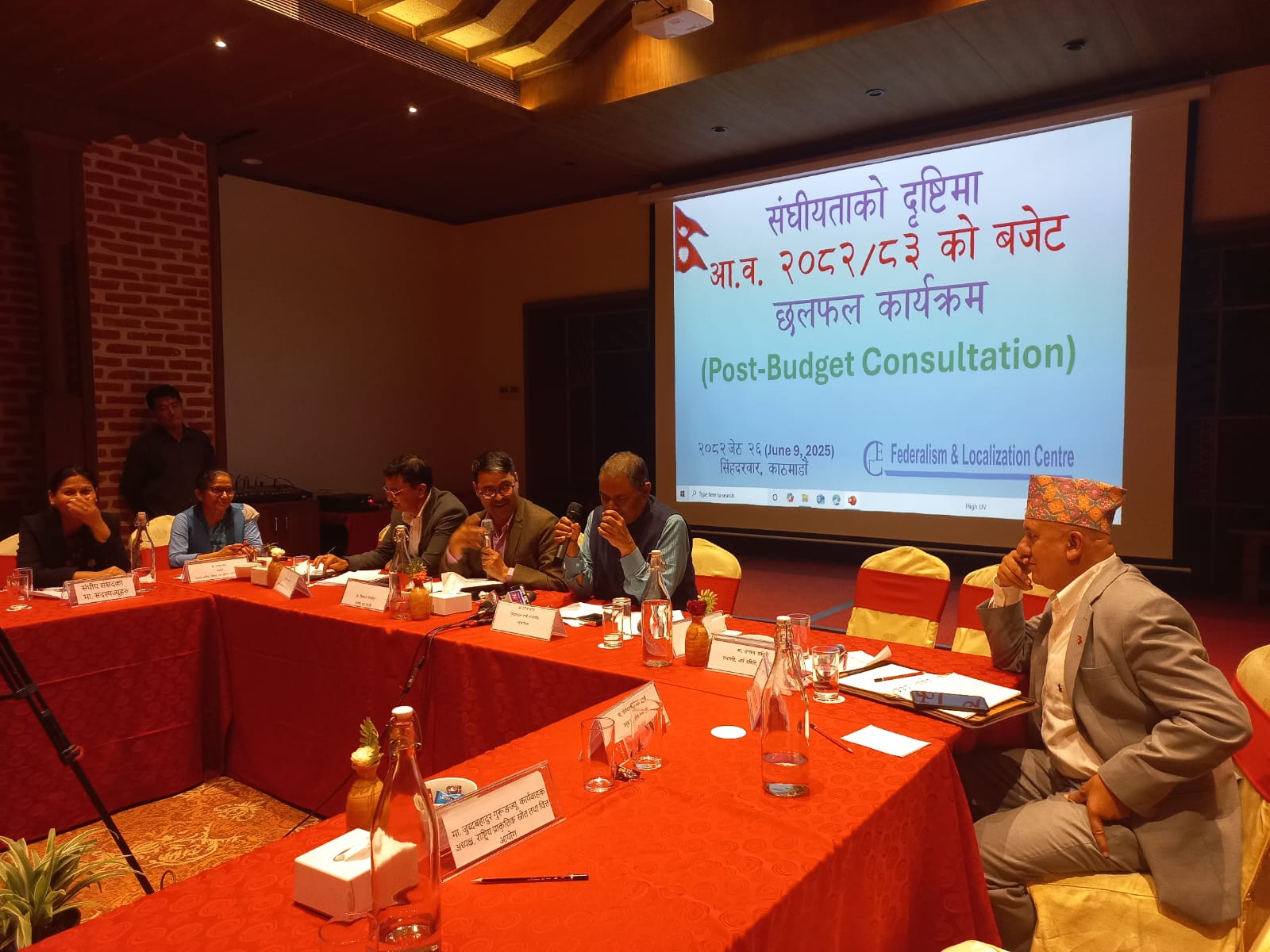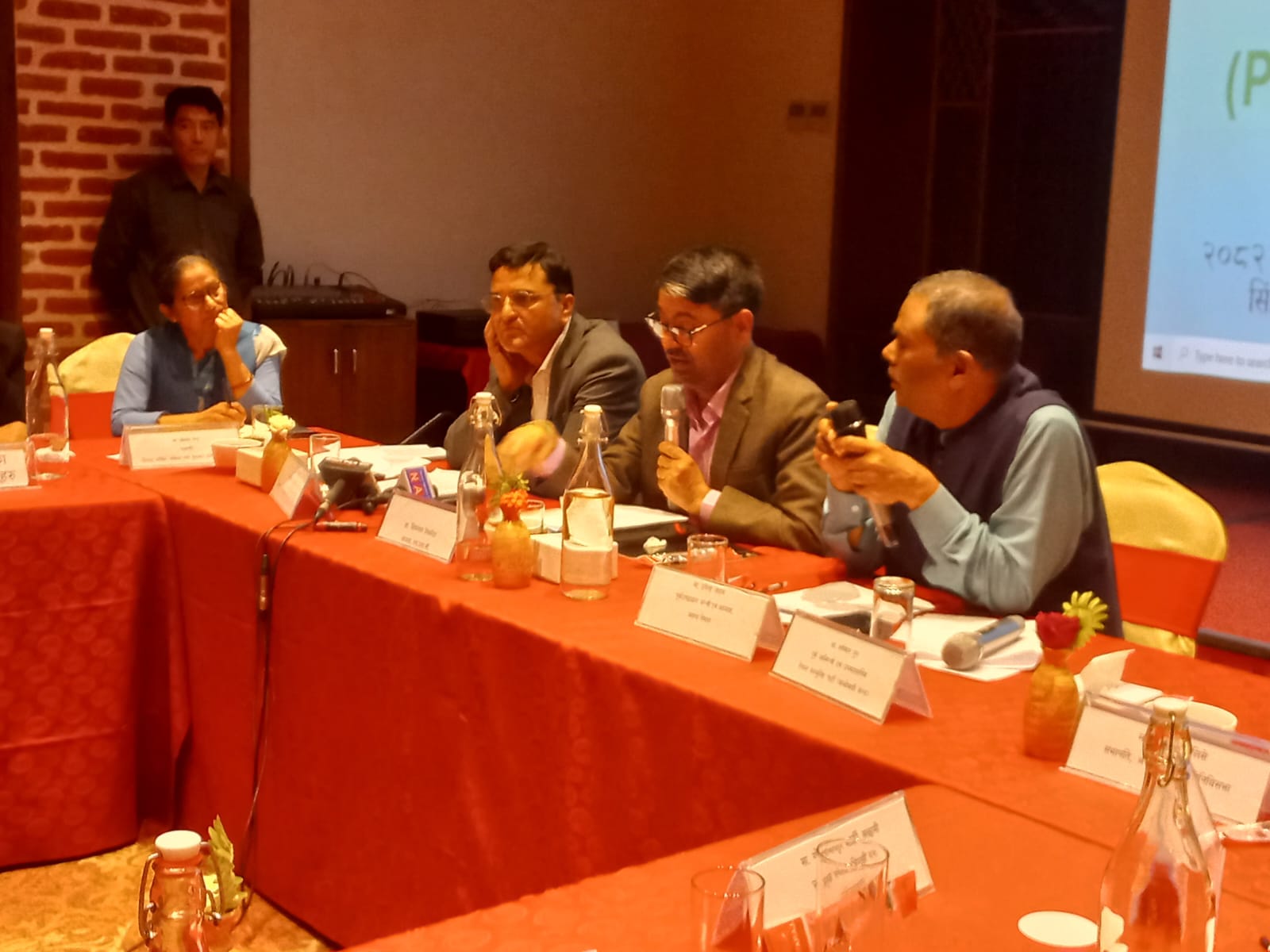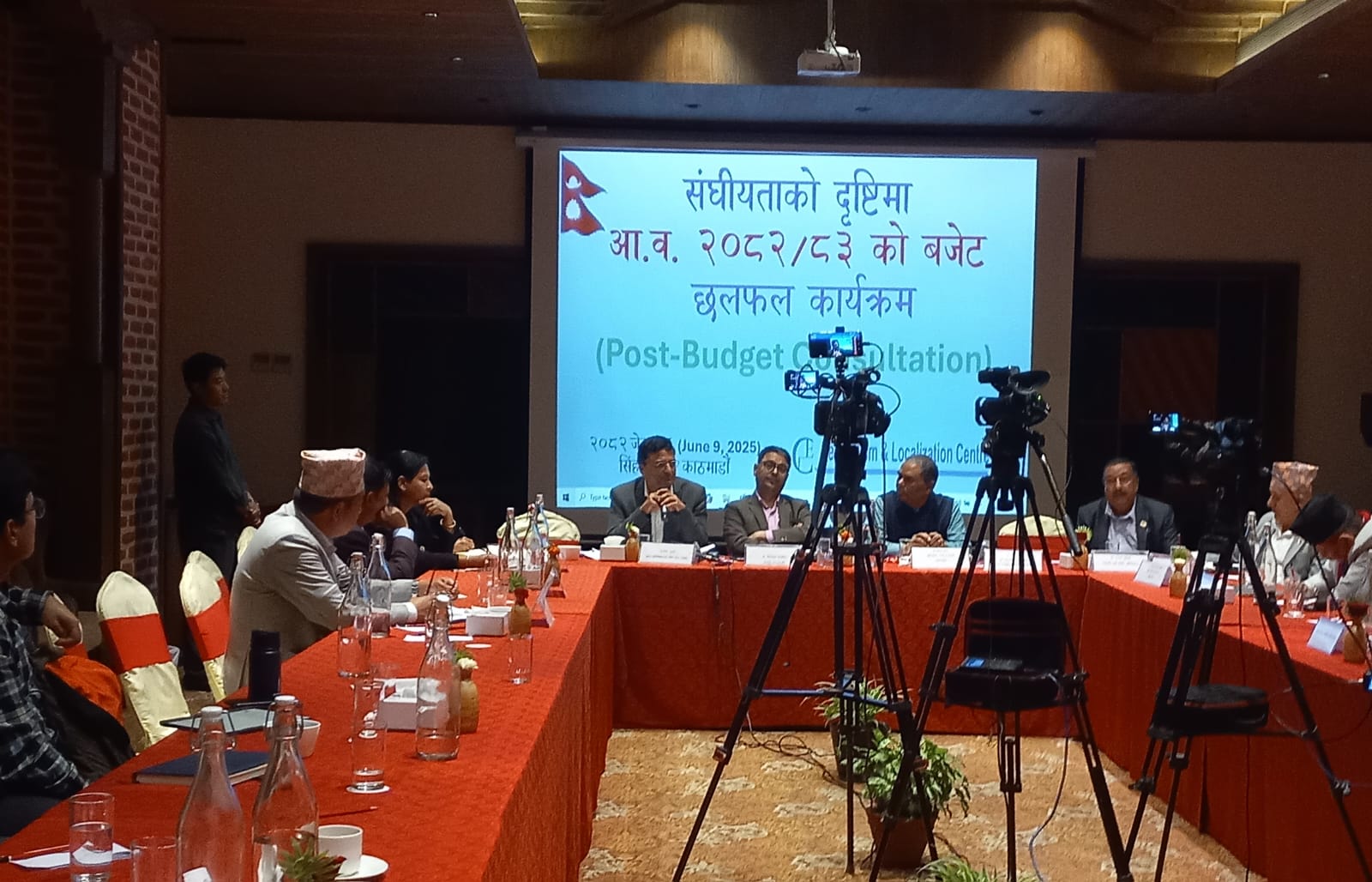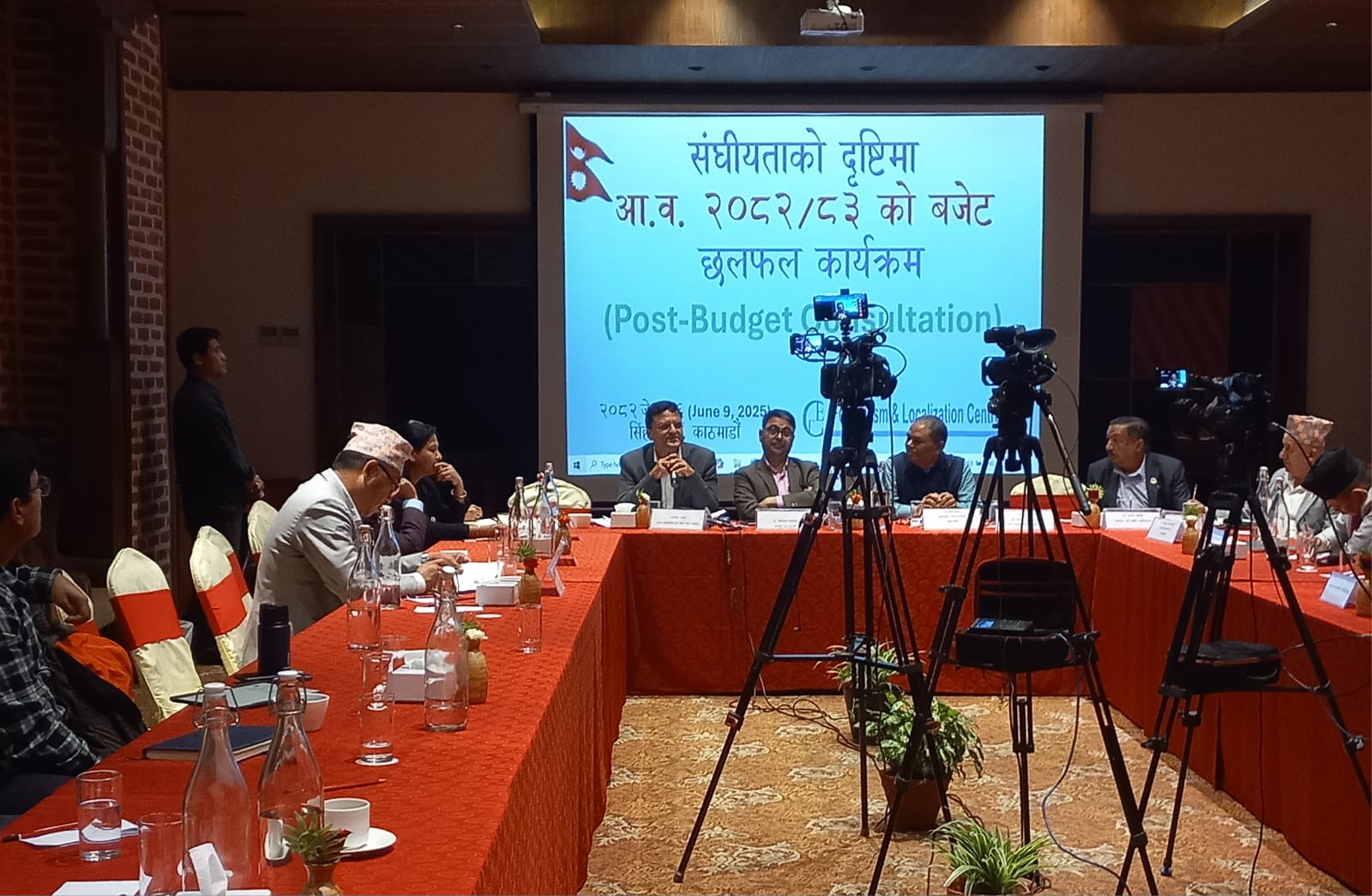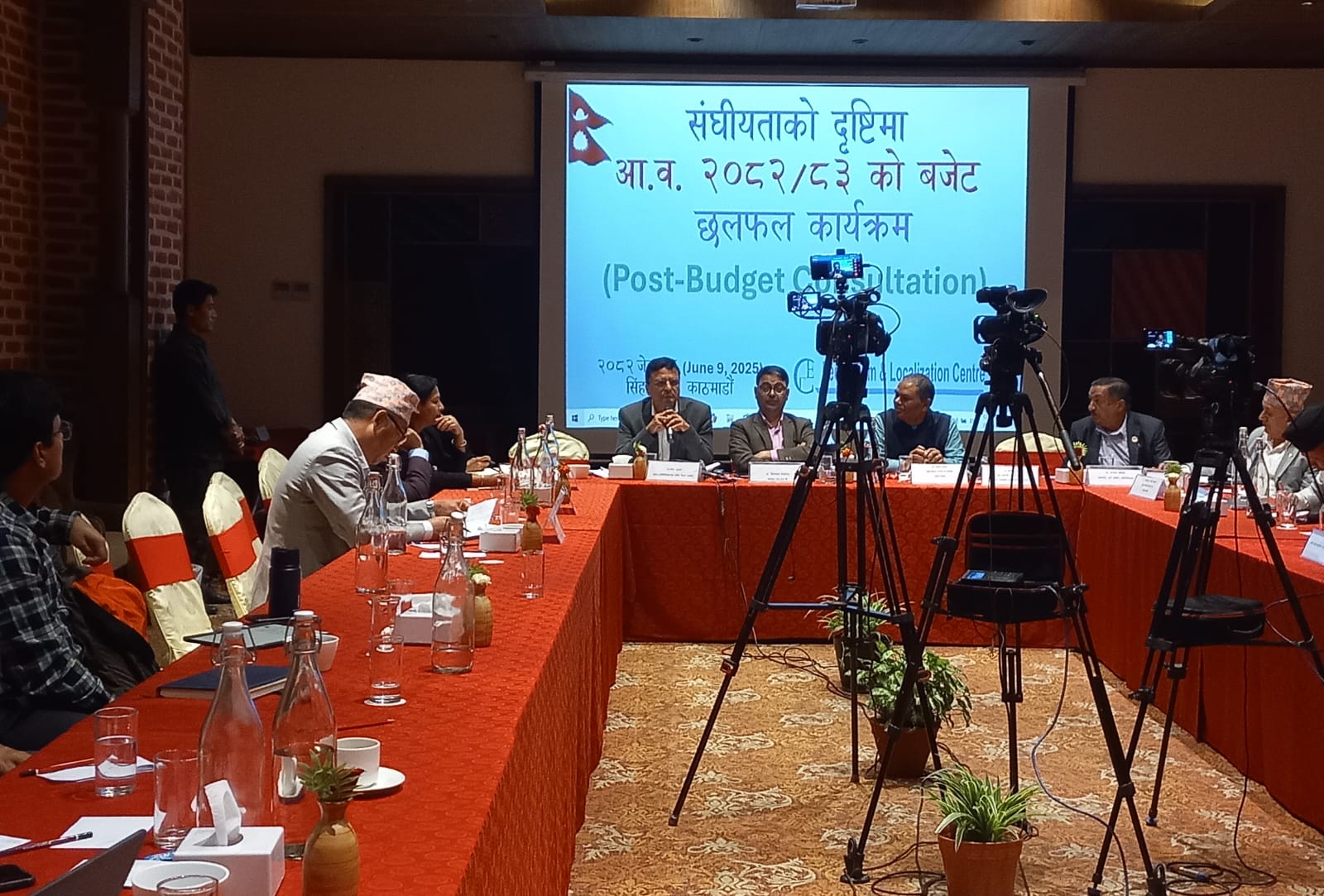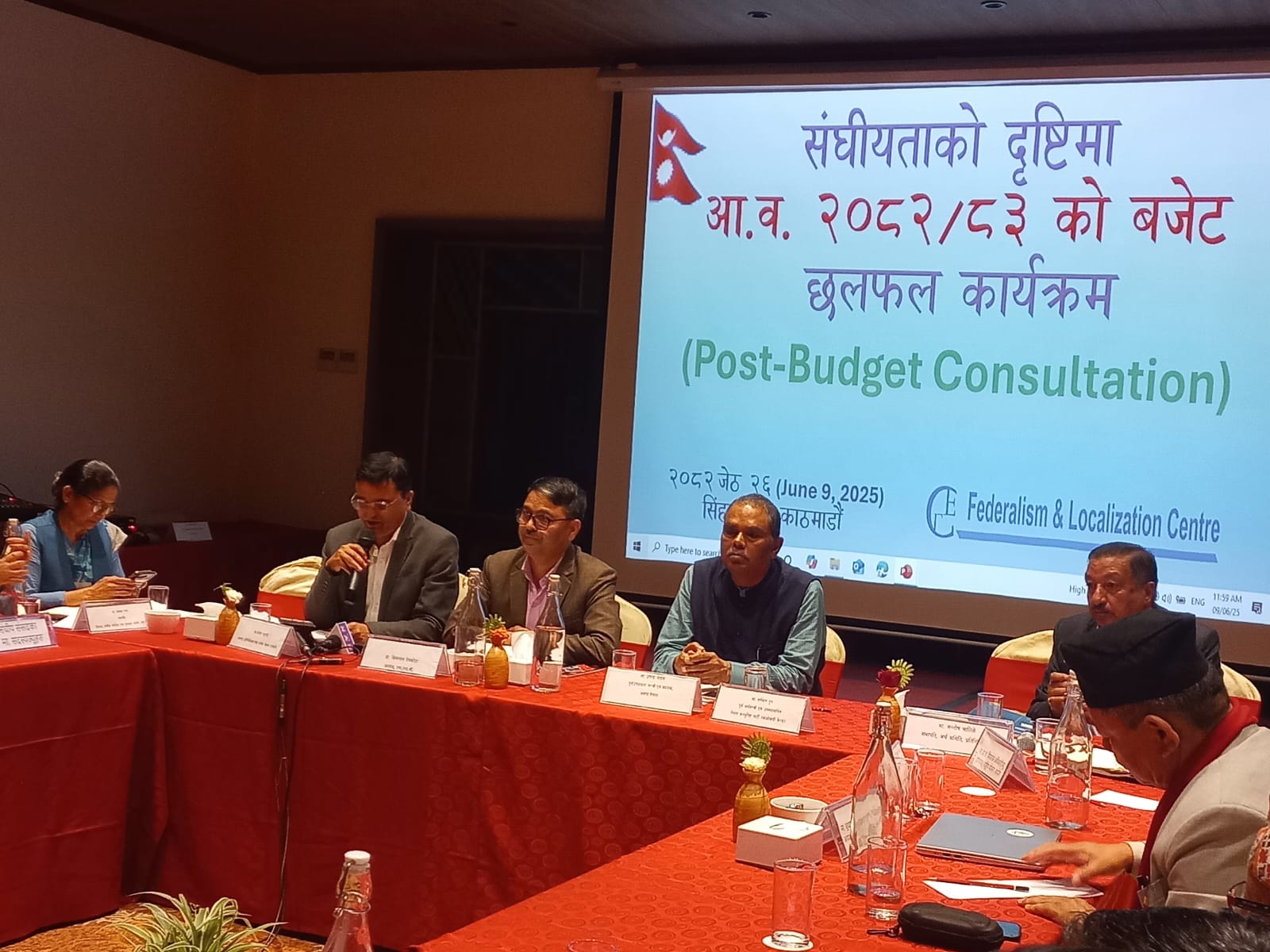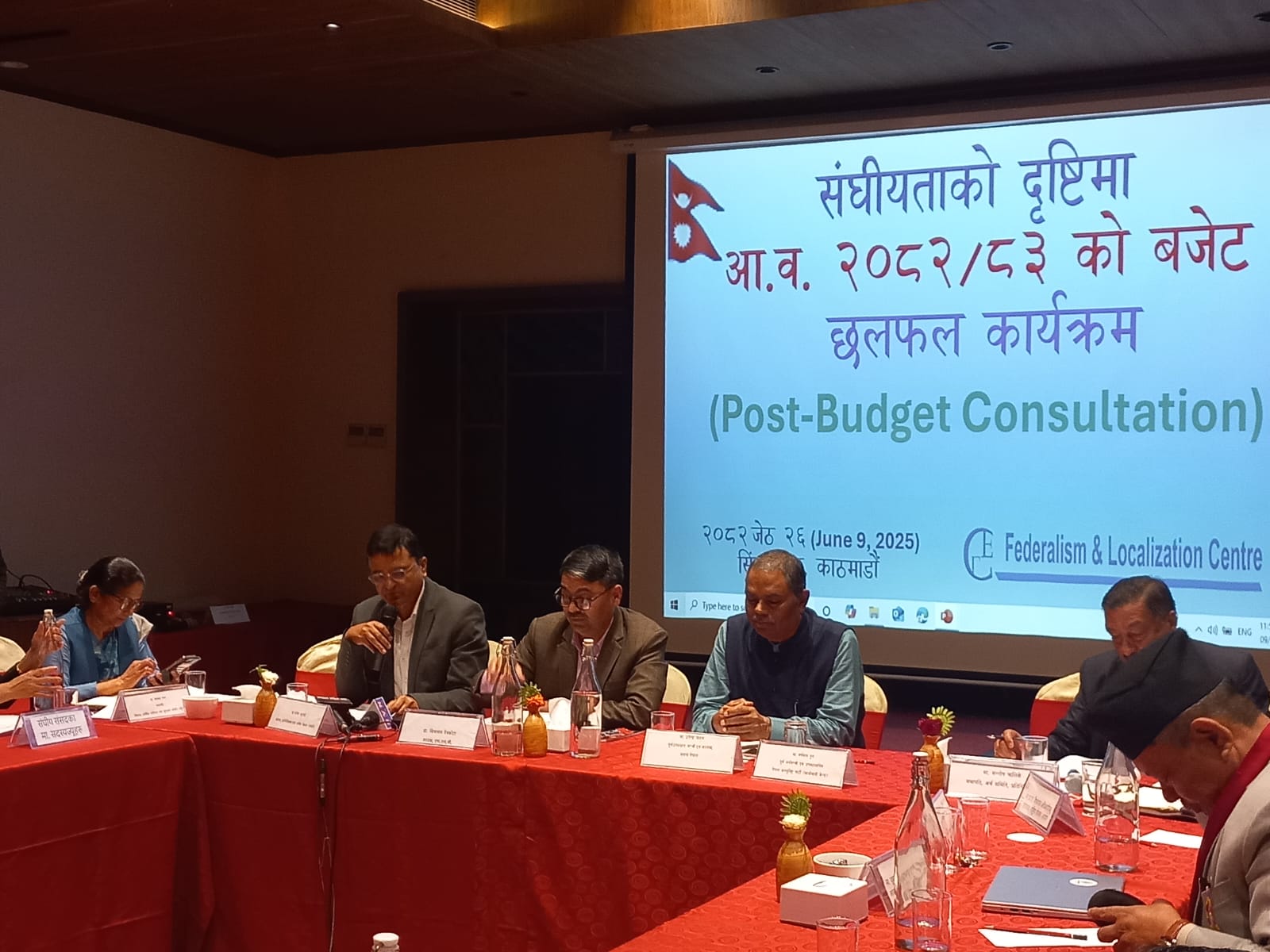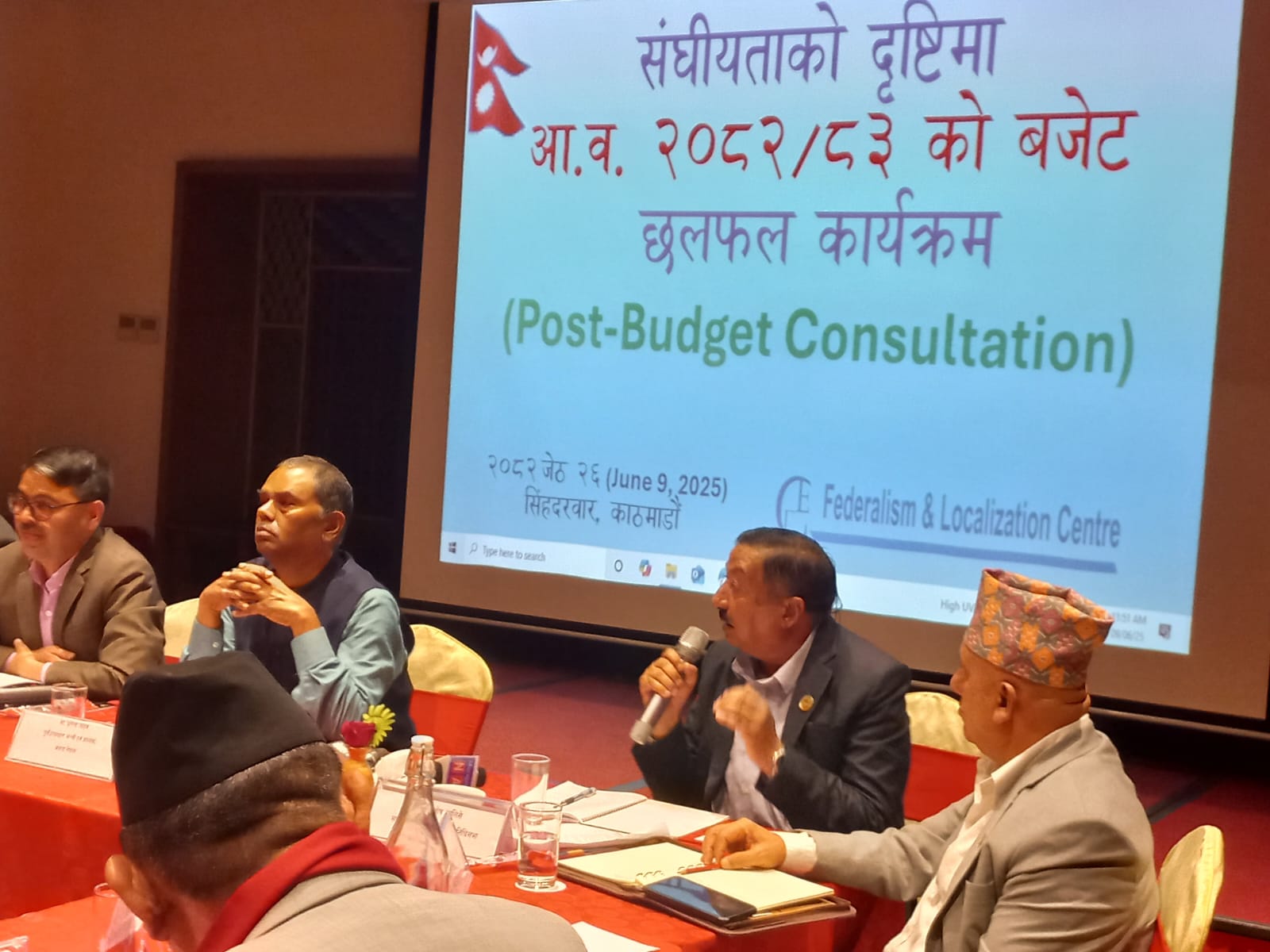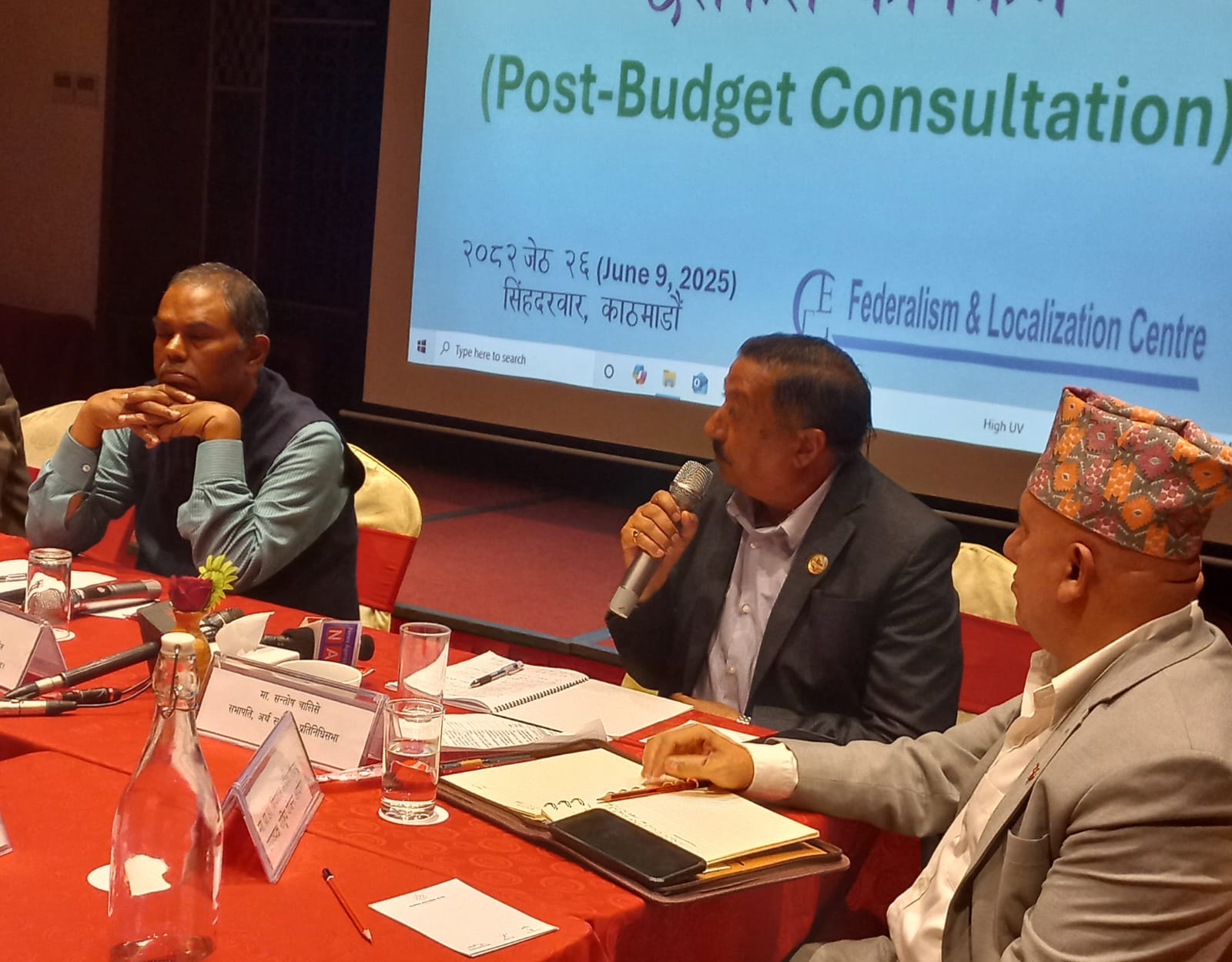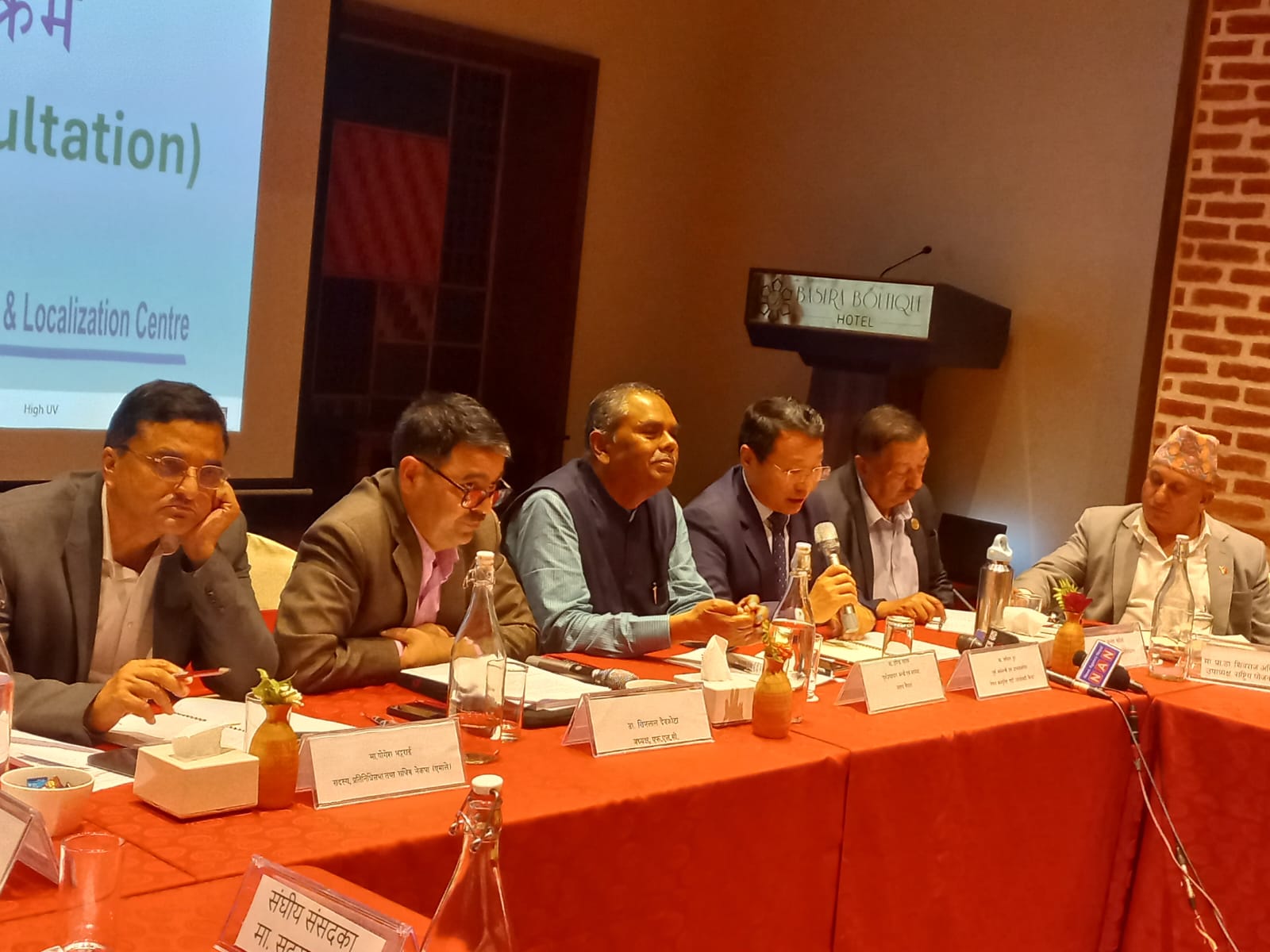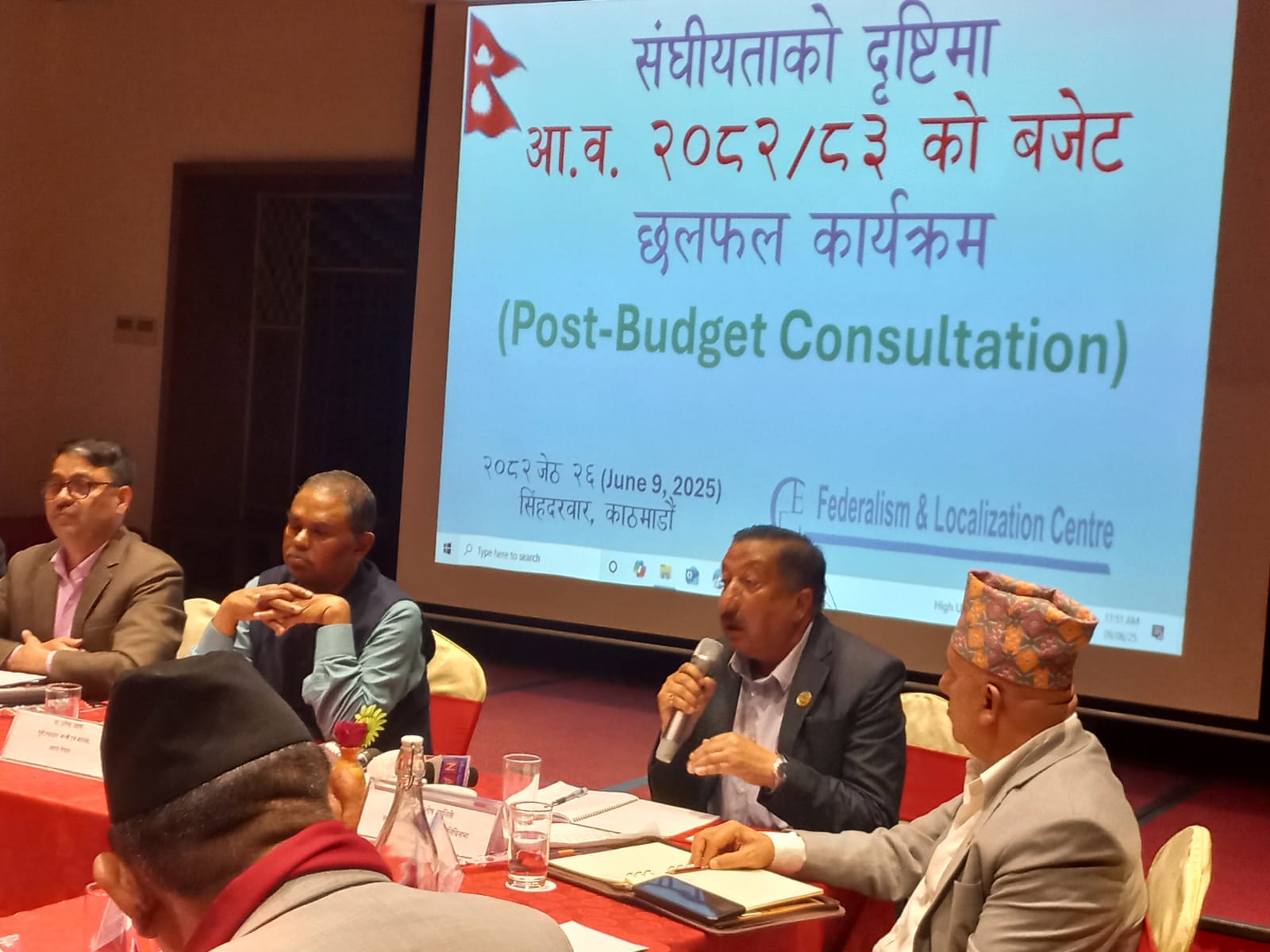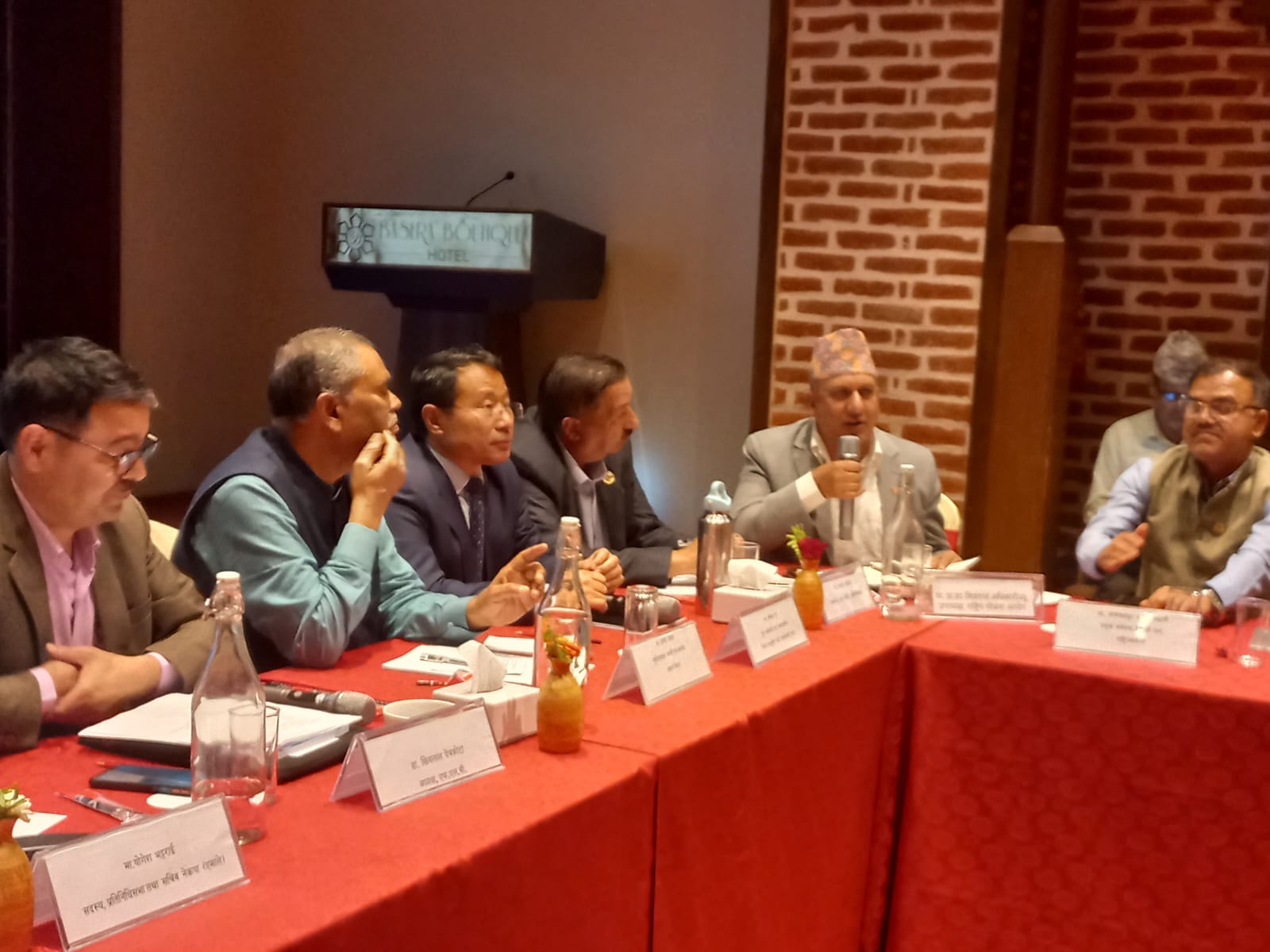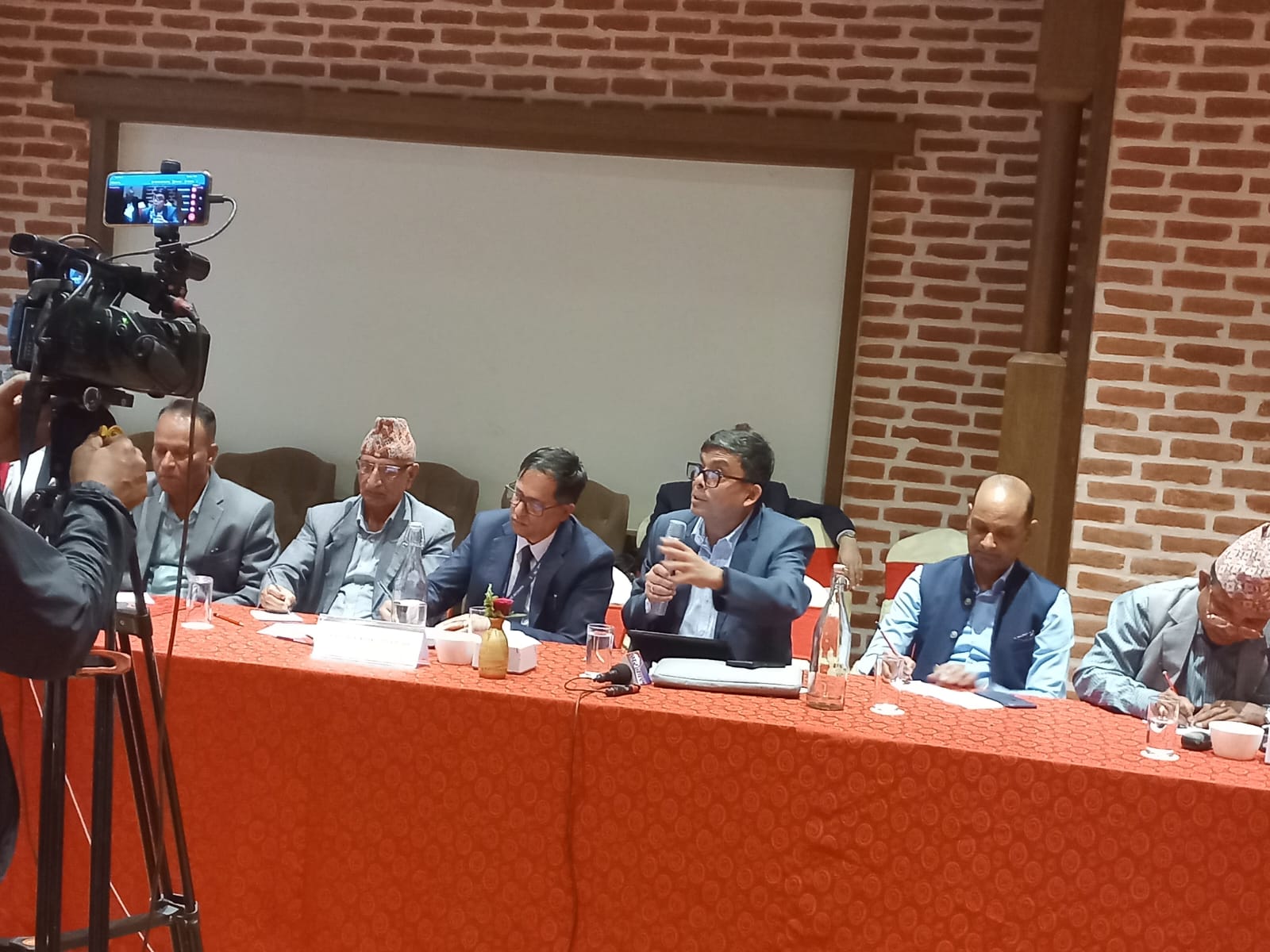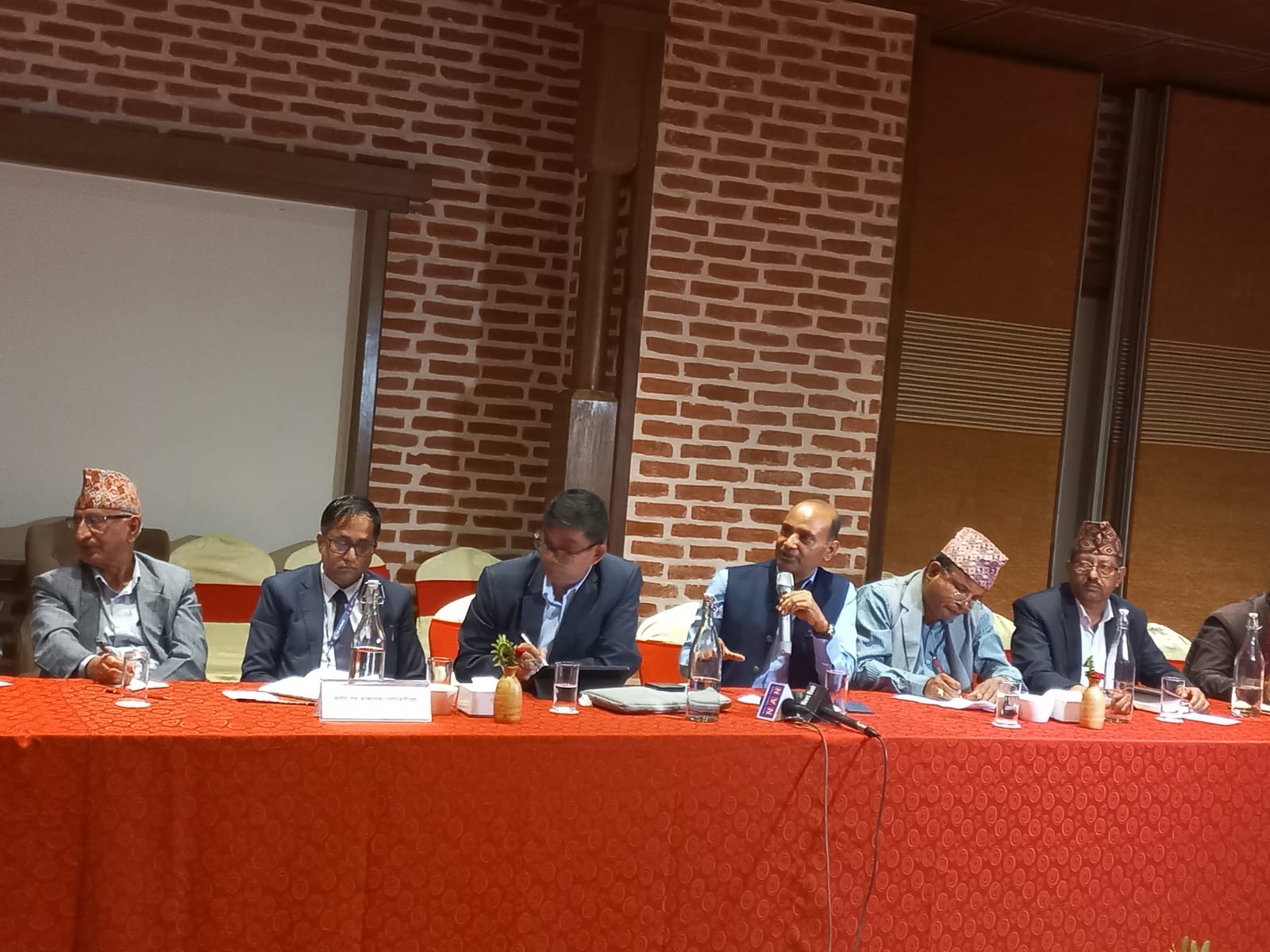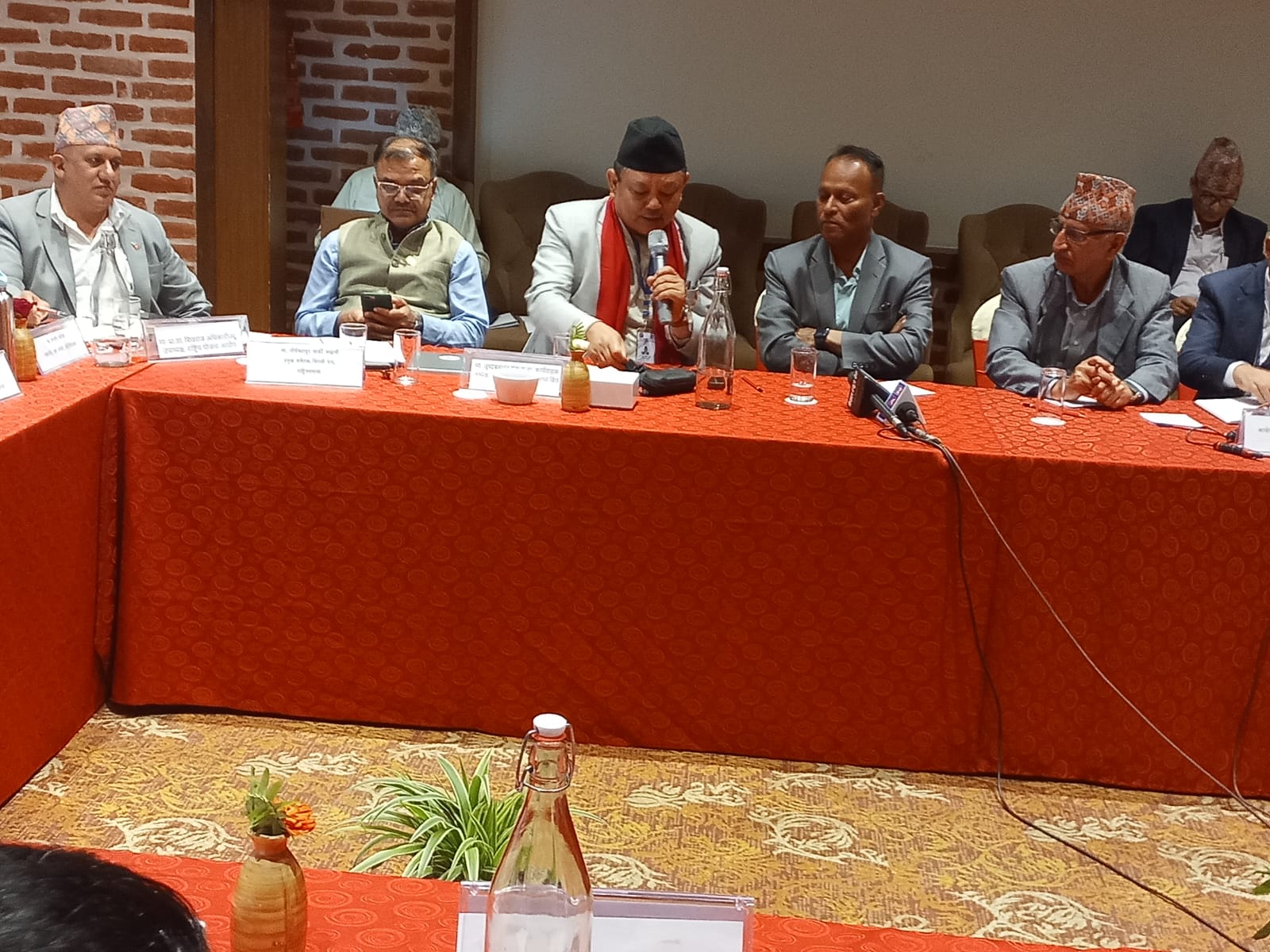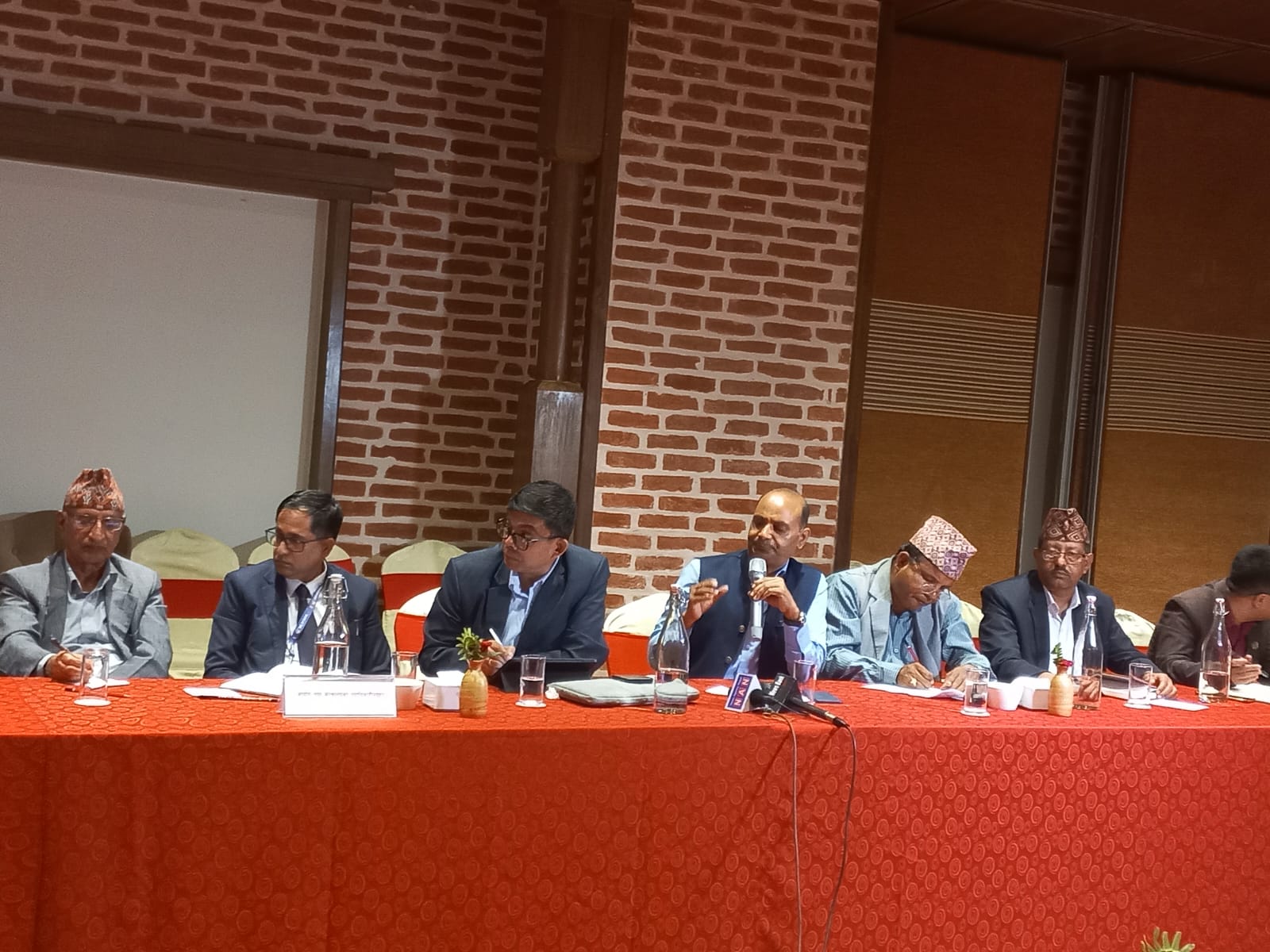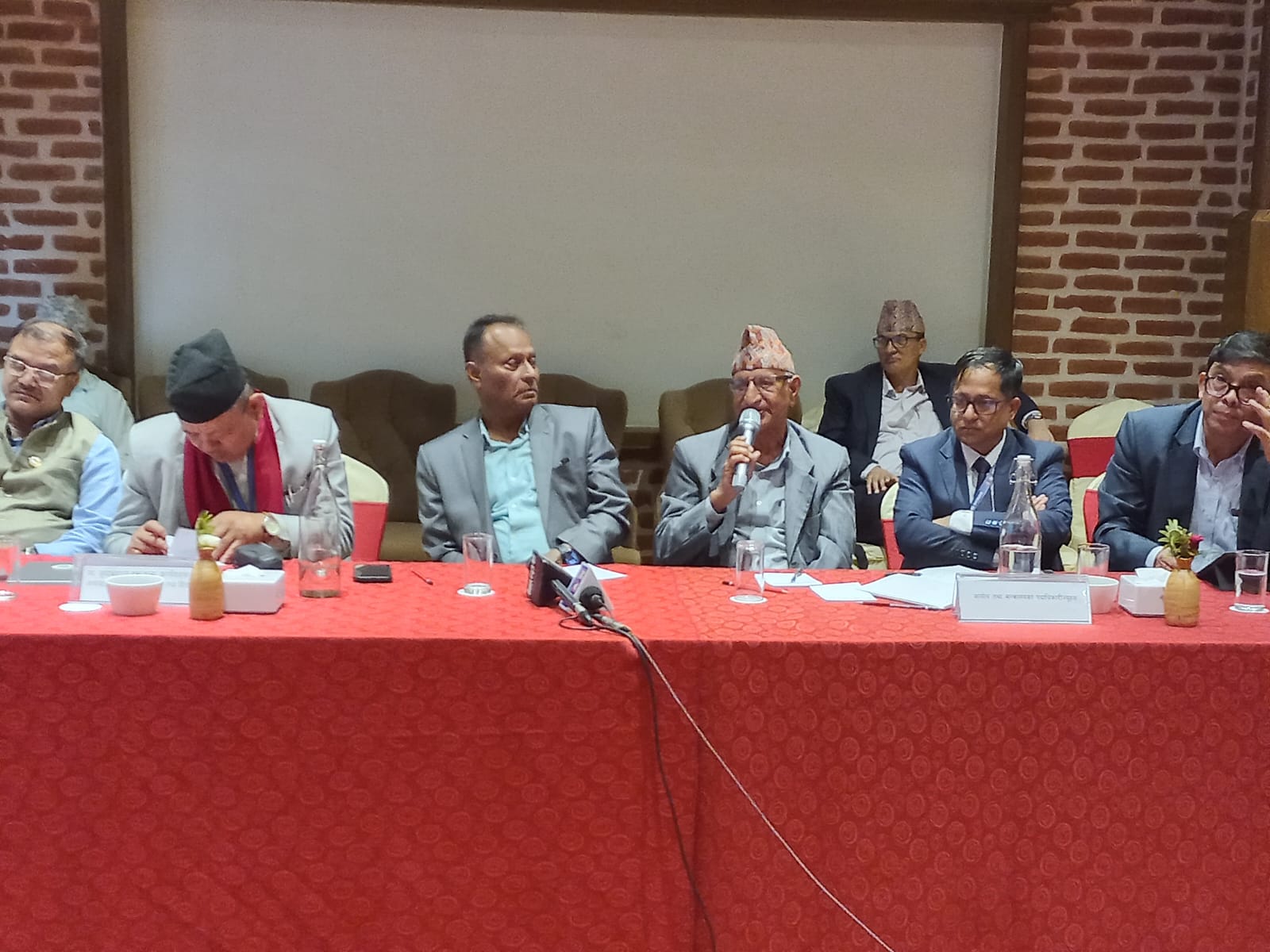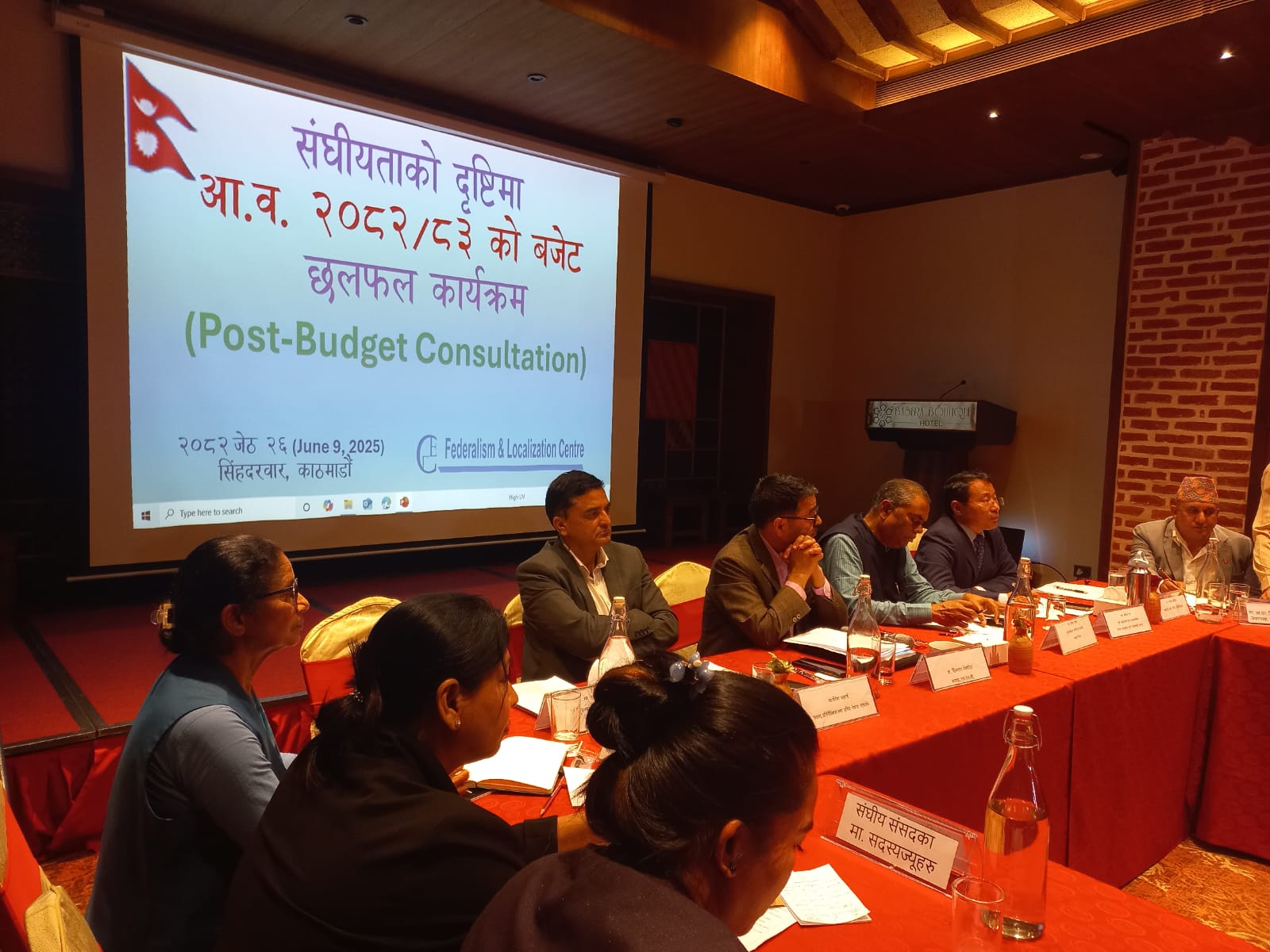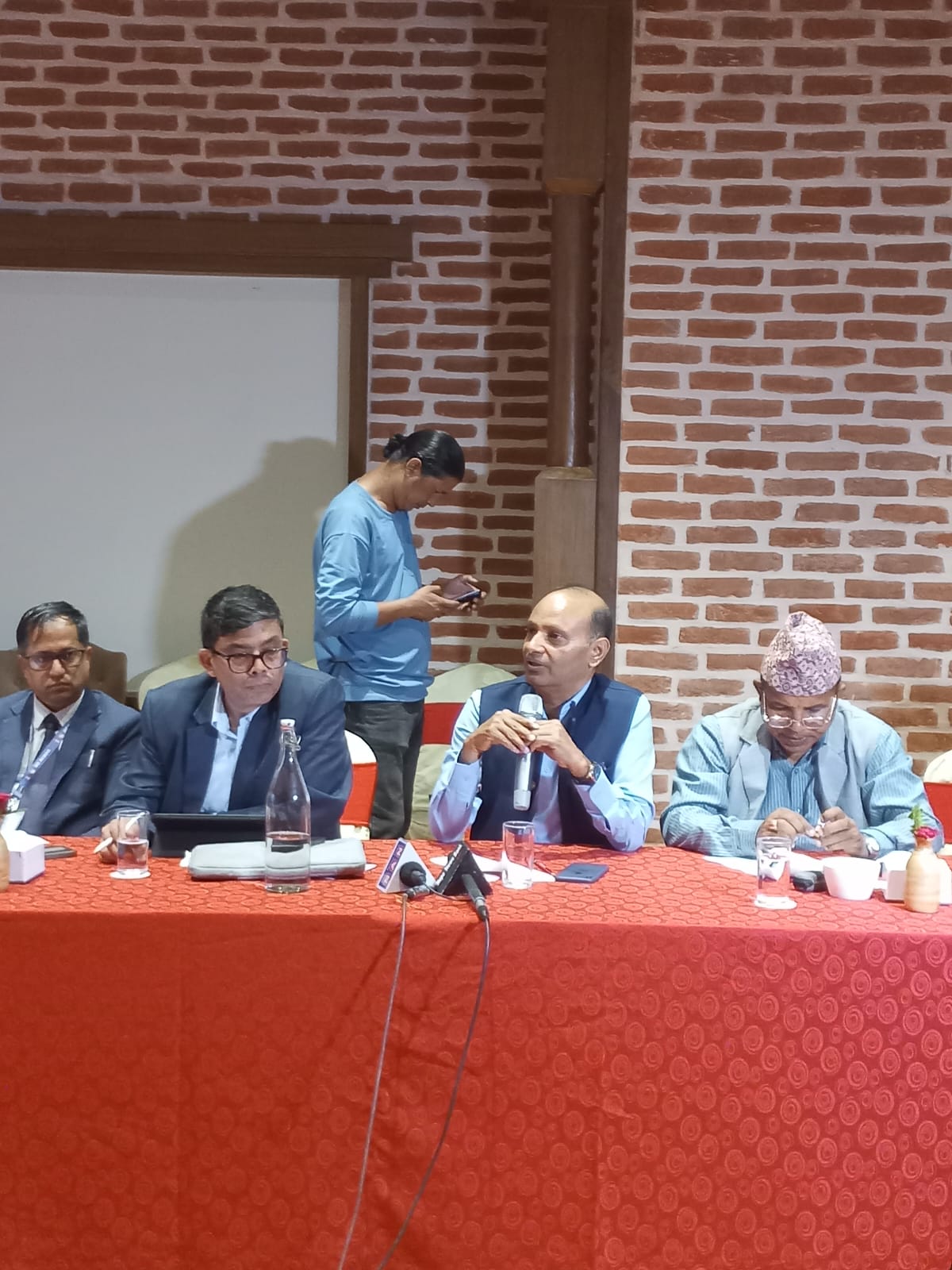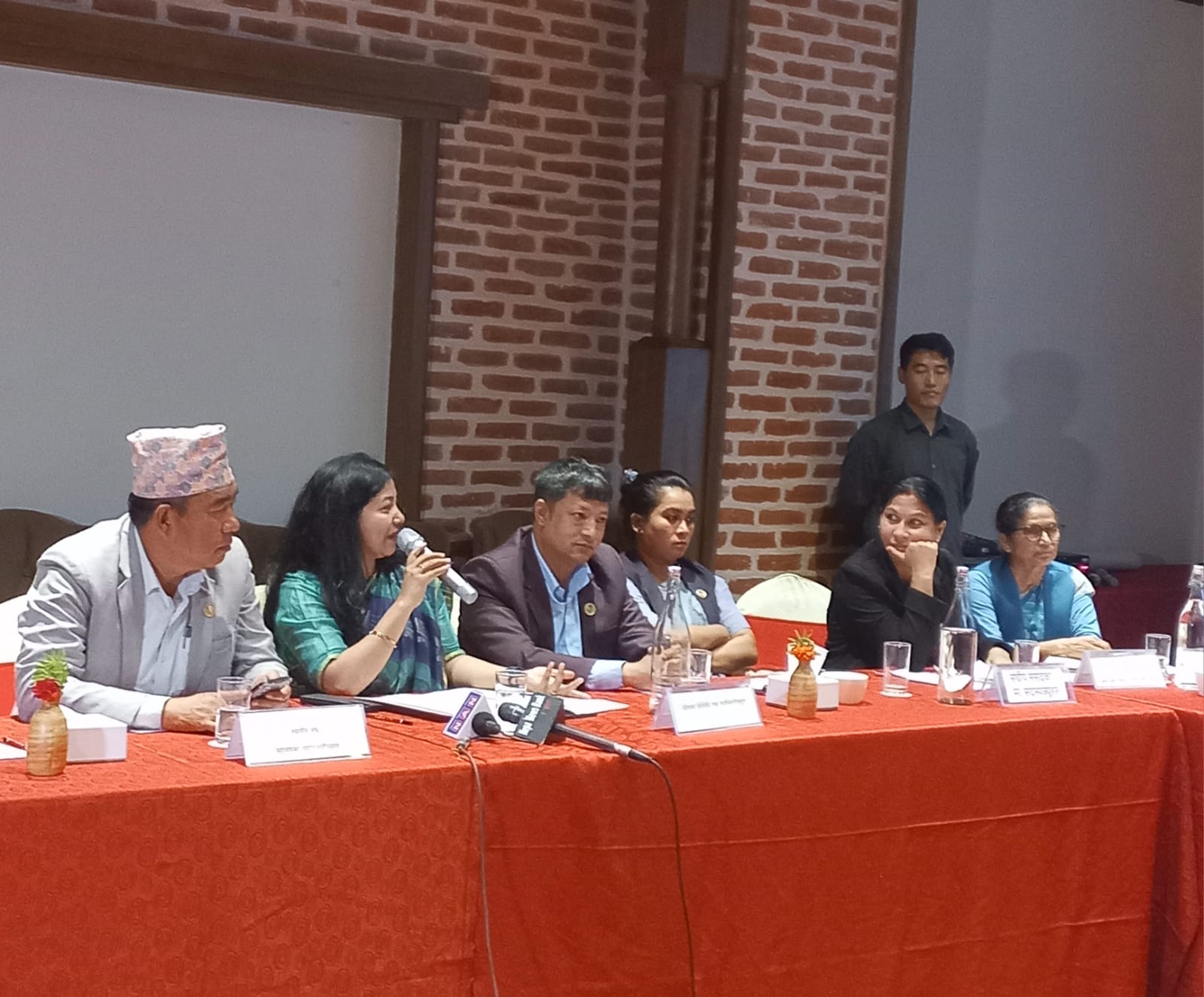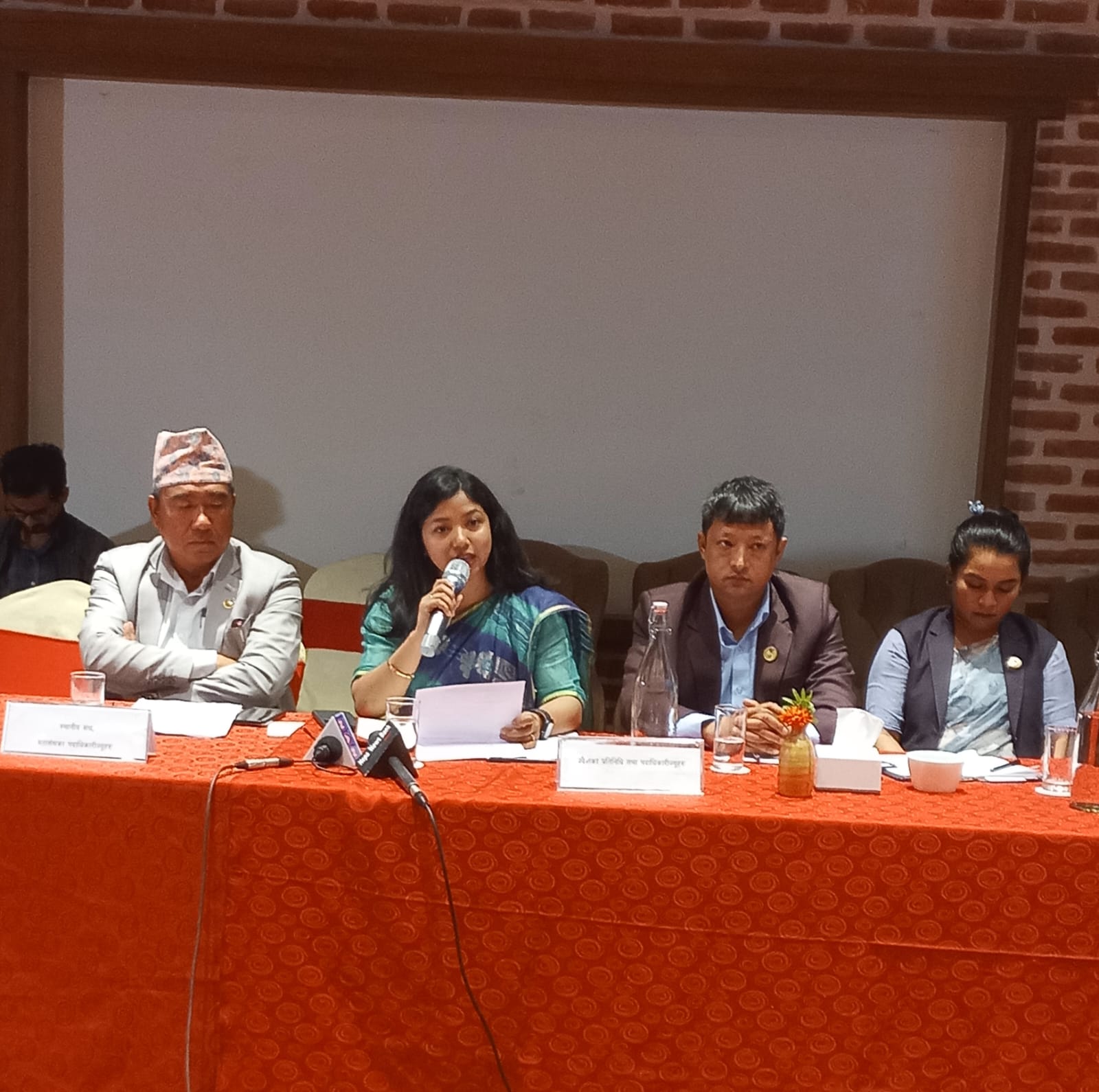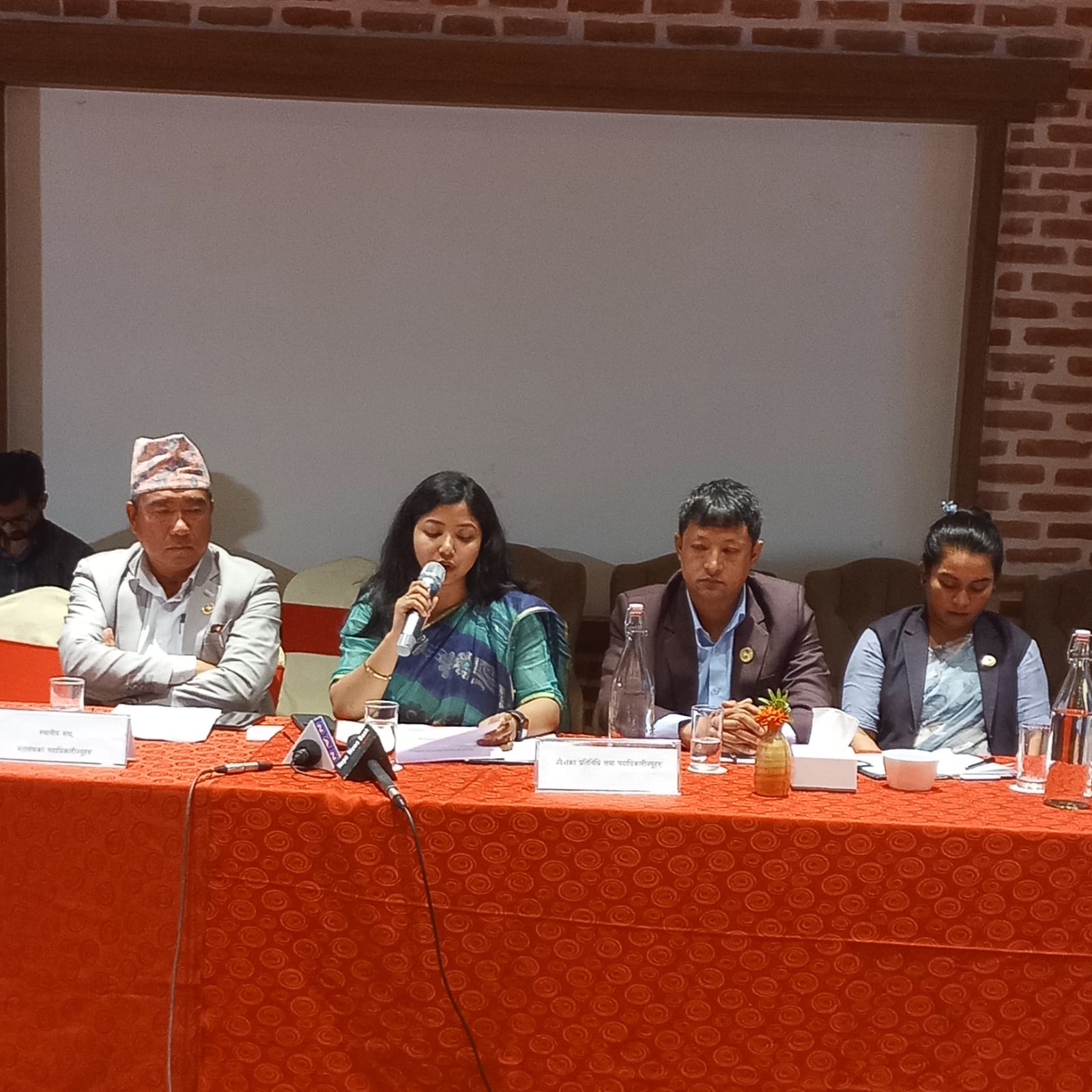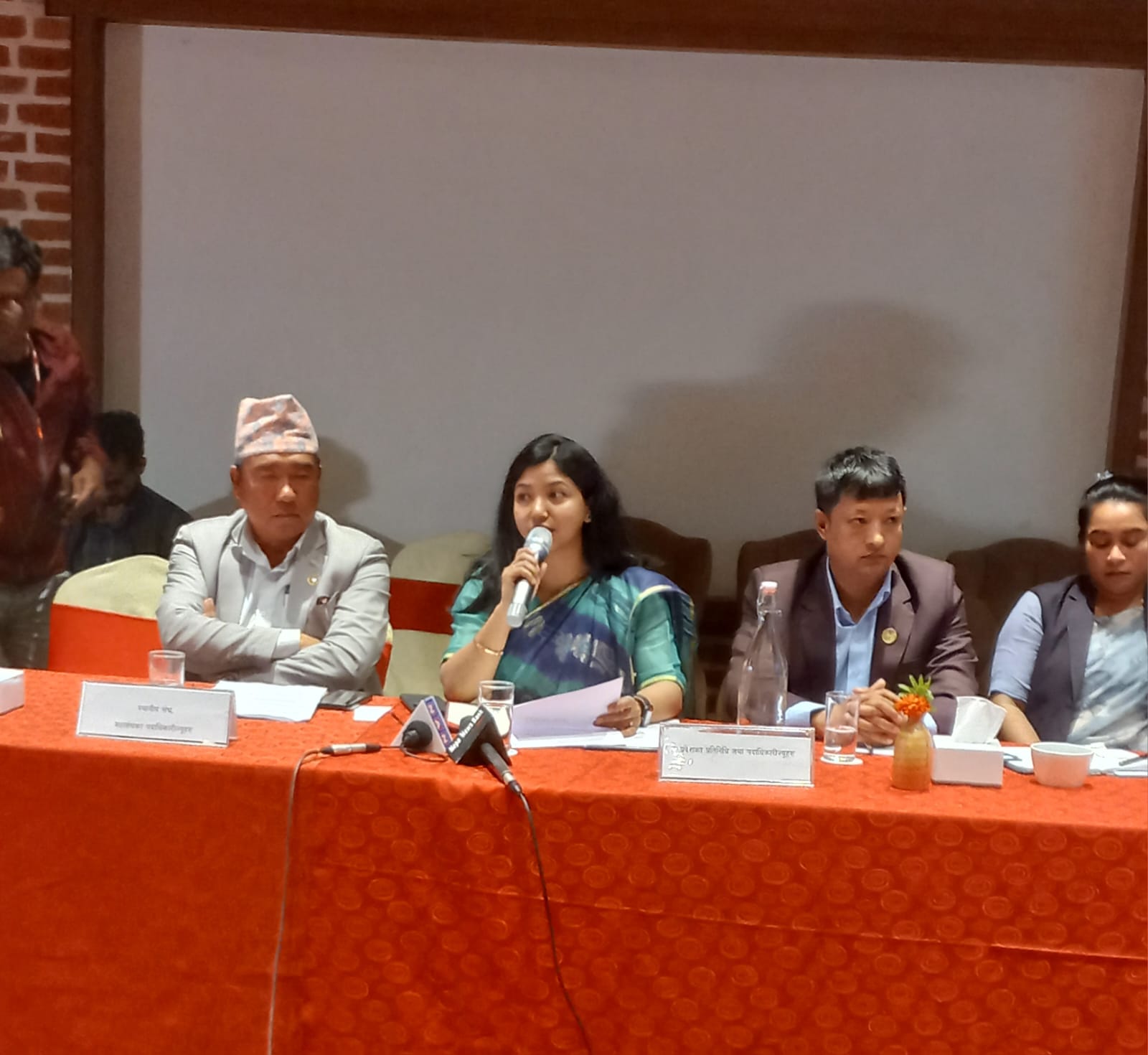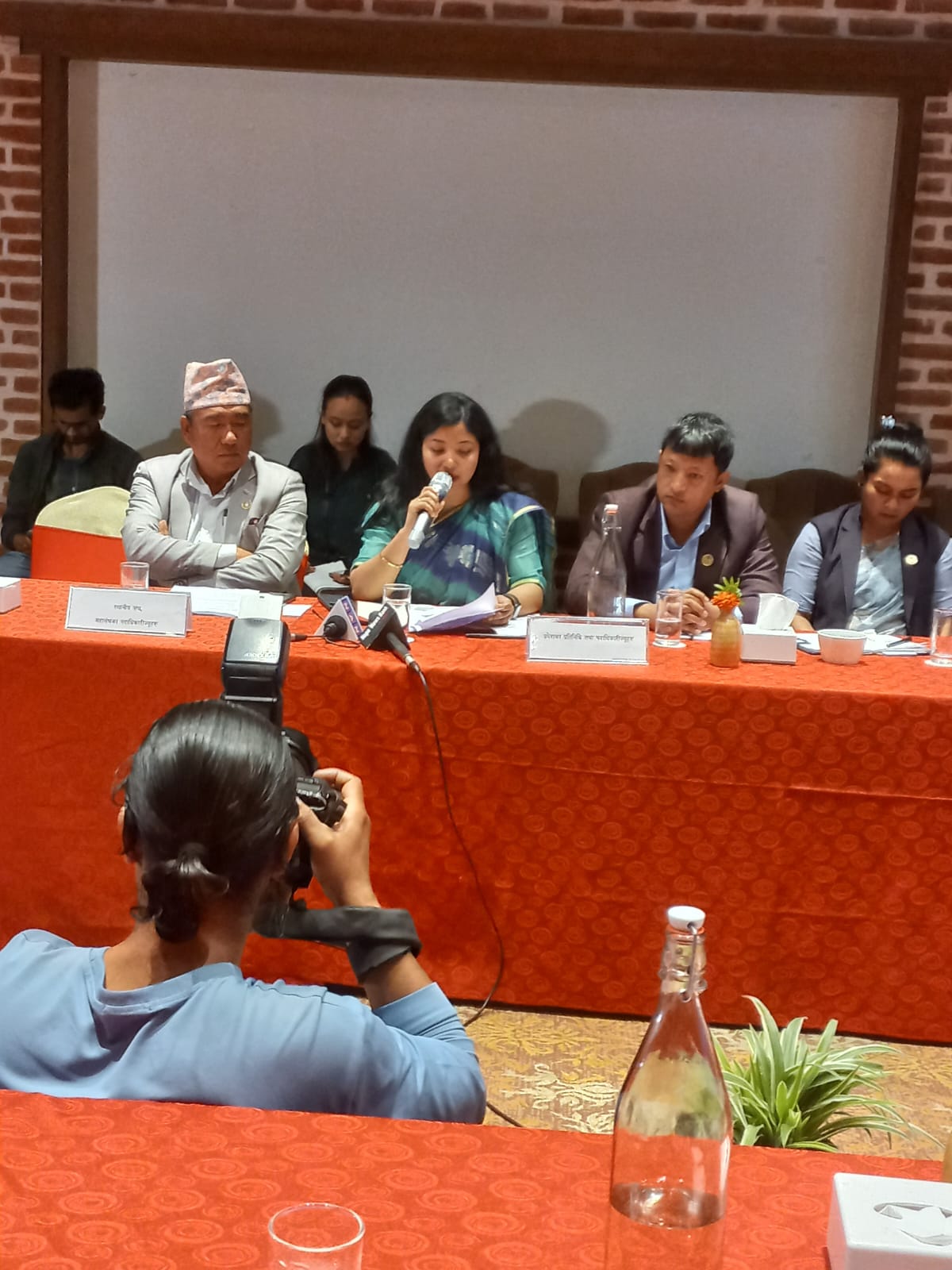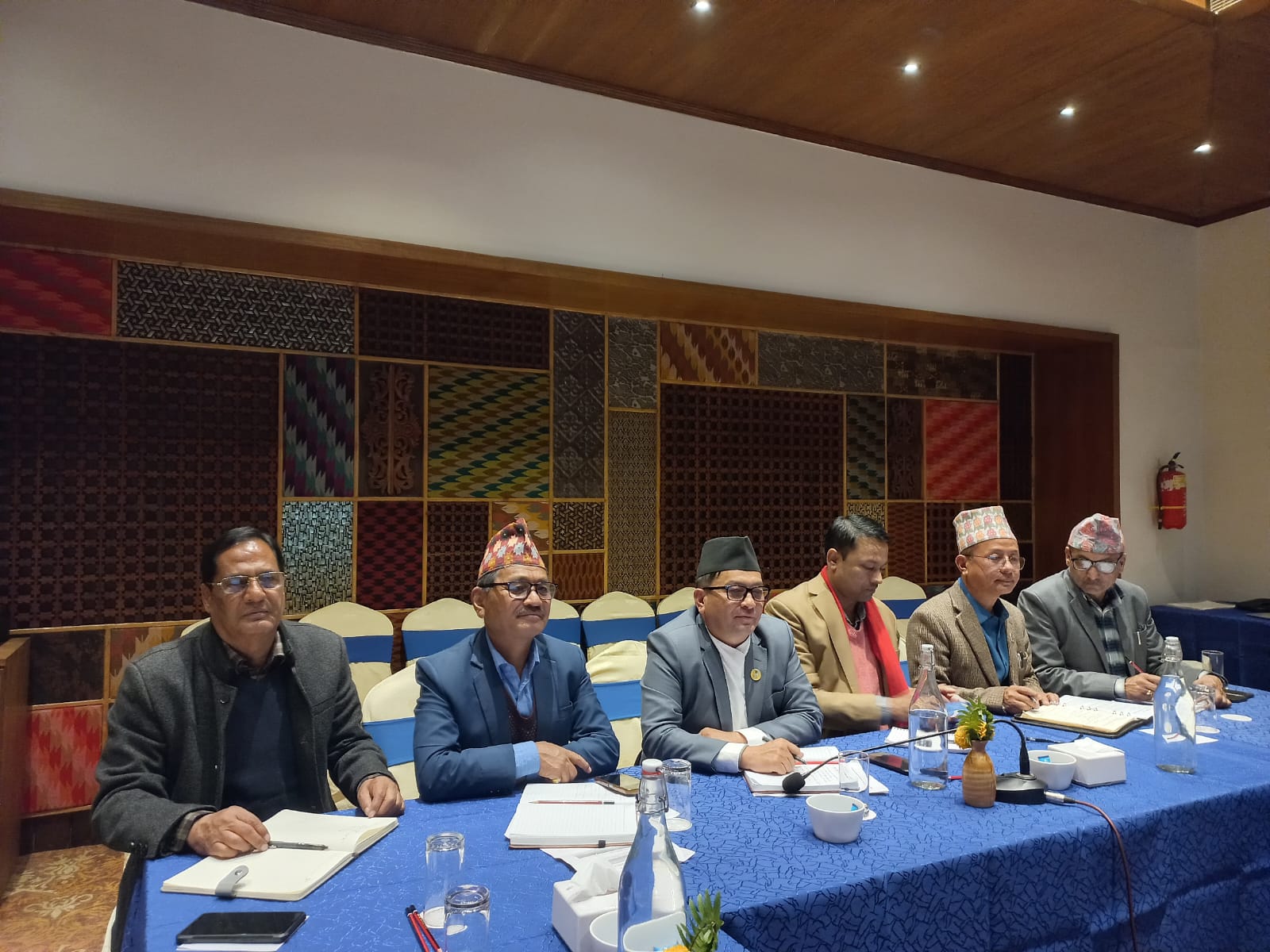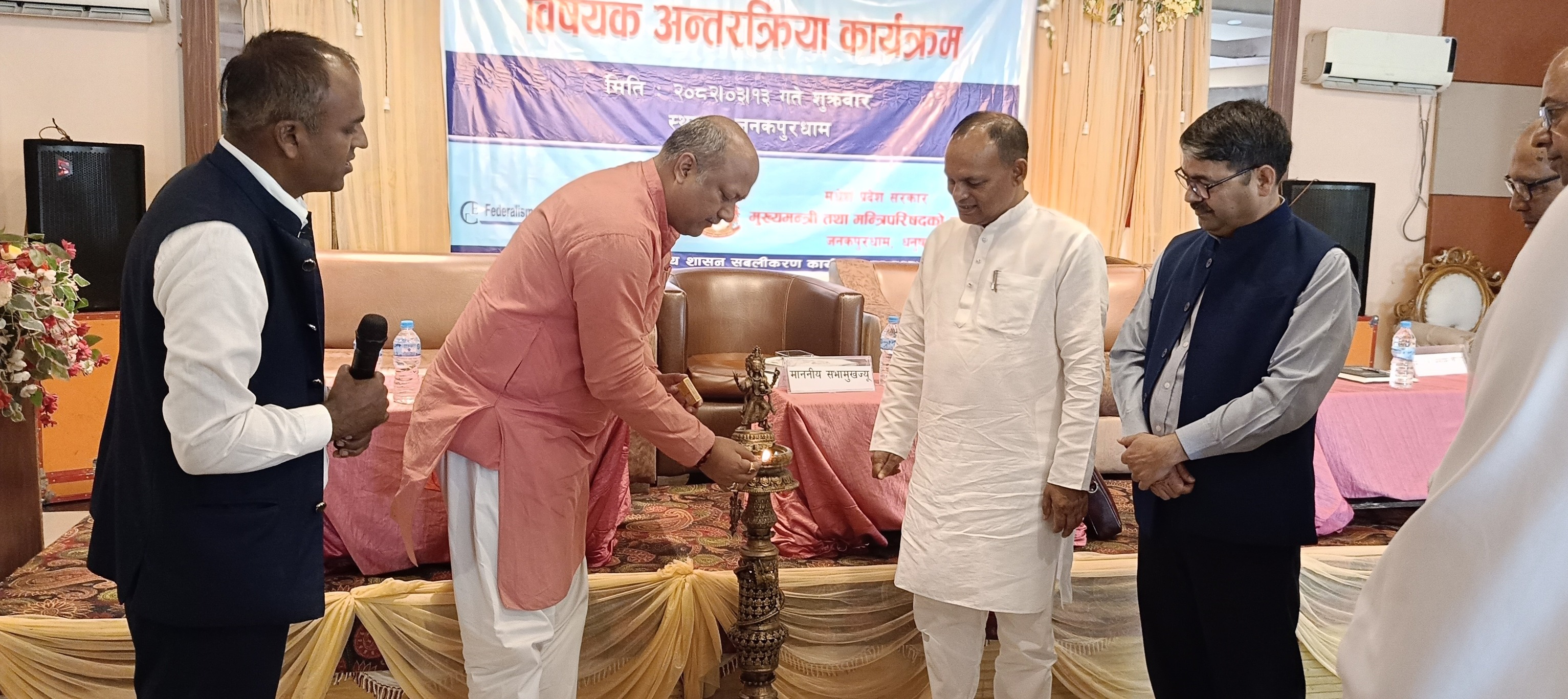Dialogue Details
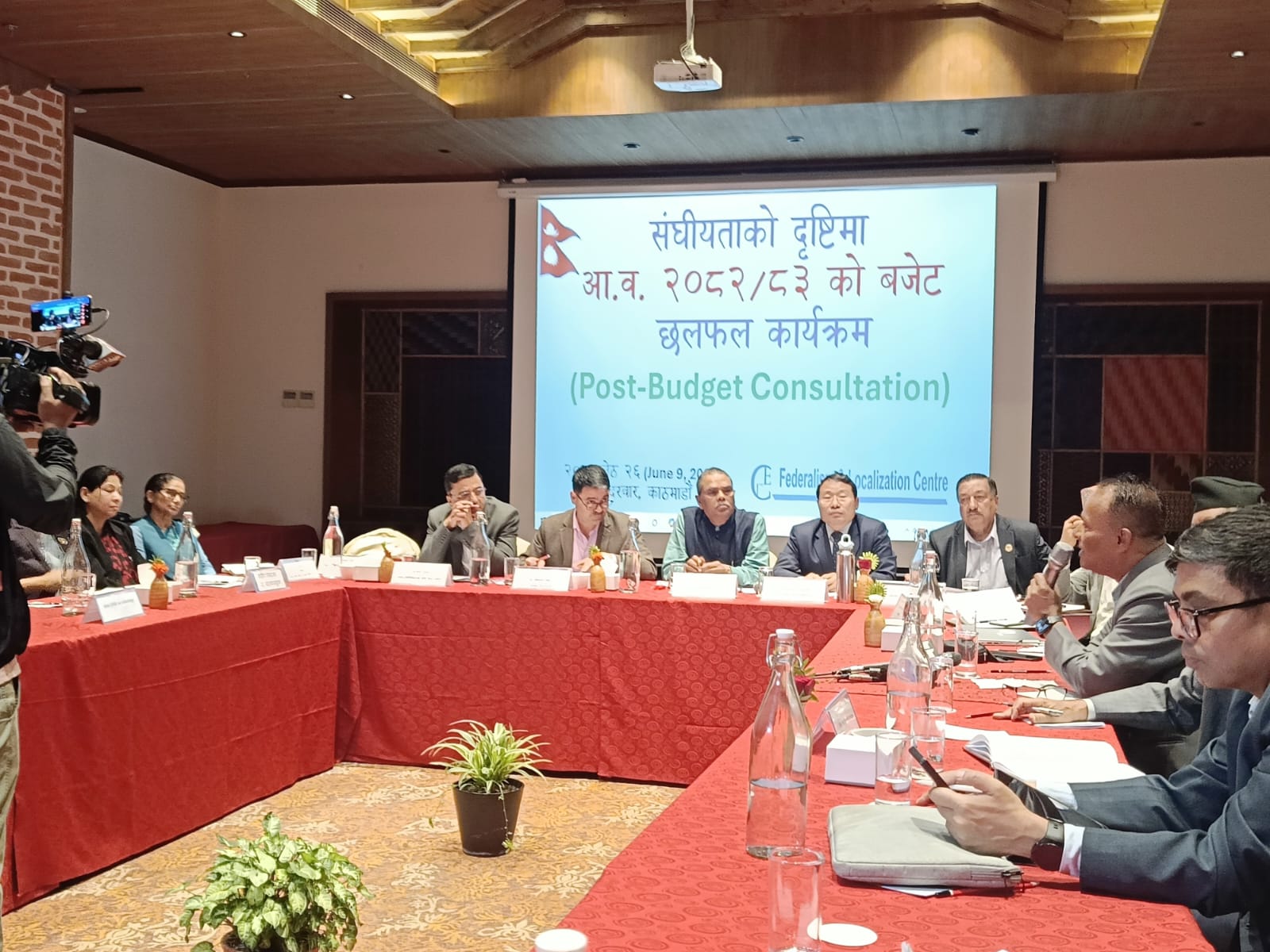
Post-Budget Consultation 2025: Strengthening Fiscal Federalism in Nepal
June 9, 2025
The Federalism and Localization Center (FLC) organized a Post-Budget Consultation to deliberate on Nepal's recently unveiled budget and identify key issues for consideration in the final stages of provincial budget formulation.
Key Remarks from Distinguished Speakers
Dr. Khim Lal Devkota, Chair of FLC, highlighted how federalism is being undermined, noting that “the federal government keeps major revenue sources while micromanaging small projects (NPR 3 crore) and ignoring strategic priorities like pride projects.”
Hon. Upendra Yadav, Member of the House of Representatives, Chair of the People's Socialist Party, Nepal, and former Deputy Prime Minister, emphasized the critical need to incorporate Human Development Index (HDI) metrics and population size as fundamental criteria in budget formulation. Drawing comparative insights, Hon. Yadav highlighted a stark contrast in fiscal federal practices: while federal nations like India and the United States allocate over 60% of their budgets to subnational governments, Nepal's transfers remain disproportionately low at just 6–8%.
Hon. Yogesh Bhattarai, Member of the House of Representatives and former Minister and Secretary of CPN (UML), acknowledged shortcomings in current fiscal transfer mechanisms, which, he said, fail to uphold the true spirit of federalism. However, he maintained that subnational governments must take greater initiatives in revenue diversification: “While the federal government should remove existing barriers, the primary responsibility for expanding revenue sources lies with provincial and local governments themselves,” he asserted.
Hon. Barsha Man Pun, Member of the House of Representatives of Nepal, Deputy General Secretary of Nepal Communist Party (Maoist Center) and former Finance Minister, critically assessed the effectiveness of project banks, noting a fundamental disconnect between planning and execution: “The current system is flawed,” he observed, “where one Finance Minister proposes budget principles and projects, while another implements them—creating discontinuity.”
Hon. Santosh Chalise, Chair of the Finance Committee of Parliament and leader of Nepali Congress, defended the budget’s formulation process: “This budget stands apart through its consultative approach. Our committee engaged in extensive deliberations, including three dedicated sessions with the National Planning Commission, and incorporated expert inputs like Rameshwor Khanal’s recommendations.”
Hon. Kamala Panta, Chair of the Committee on Economic Affairs, Development and Good Governance, and leader of Nepali Congress, delivered a stark assessment of fiscal management: “The Auditor General’s reports consistently reveal an absence of fiscal discipline,” she stated. While addressing shortcomings in the transfer mechanism, she emphasized the concurrent need for subnational governments to strengthen their own revenue-generation capacities.
Hon. Prof. Dr. Shiv Raj Adhikari, Vice-Chair of the National Planning Commission (NPC) of Nepal, identified a core problem in budgetary practice by highlighting the imbalances in vertical and horizontal relations in the federal scheme. Hon. Ganga Dutta Awasthi, Member of NPC highlighted that non-adherence to the seven-stage budget-making process has given rise to budget allocations that fail to create demand-driven projects. likewise, Hon. Dr. Prakash Kumar Shrestha, Member of NPC further elaborated the problem: the local governments fail to achieve autonomy as they don't have effective power to generate revenues. It further gets exacerbated as the Khalti ko projects keep rising.
Hon. Juddha Bahadur Gurung, Acting Chair of the National Natural Resources and Fiscal Commission (NNRFC), acknowledged that the budget had been prepared in line with the Commission’s feedback. Hon. Ganga Dutta Awasthi, Member of NPC highlighted that non-adherence to the seven-stage budget-making process has given rise to budget allocations that fail to create demand-driven projects. likewise, Hon. Dr. Prakash Kumar Shrestha, Member of NPC further elaborated the problem: the local governments fail to achieve autonomy as they don't have effective power to generate revenues. It further gets exacerbated as the Khalti ko projects keep rising.
Hon. Kalpana Miya Kusari, Member of the House of Representatives and Hon. Puja Chaudhary, Member of National Assembly reflected on the budget saying the budget formulation is like Deusi-Bhailo where people visiting the political leaders of their reach to ask for budget under any headings that is possible.
Mr. Prahlad Lamichchane, Constituent Assembly Member and Maoist Leader, questioned the possibility of subnational governments getting strengthened in a situation wherein only 9.10 percent is allocated for subnational levels. Likewise, Hon. Nuraj Bajracharya, Chair, Finance and Development Committee, remarked that this budget has almost nothing for the youth. He asserted 'we are producing slaves for modern times and this budget has nothing to address this.'
Mr. Ganesh Bahadur Bishwokarma, former Vice-Chairman, Provincial Policy and Planning Commission, Government of Sudurpashchim Province, Dr. Jagat Basnet Vice-Chairs, Province Policy and Planning Commission (PPC), Bagamati Province and Mr. Keshav Subedi, Secretary of PPC of Bagamati Province Province questioned the effectiveness of this budget from provincial perspectives.
Mr. Gopal Krishna Neupane, Executive Director of Provincial Center for Good Governance, Bagmati Province remarked the disconnect in the budget as the revenue to be generated and expenditure projected have huge gaps. Likewise, Revati Sapkota, Registrar, Office of the Communication Registrar, Government of Bagmati Province stated that the budget formulation is not participatory.
Ms. Sunita Dangol, Deputy General Secretary, Municipal Association of Nepal (MuAN), Mr. Khim Bahadur Thapa, General Secretary, National Association of Rural Municipalities (NARMIN) and Mr. Ghanshyam Giri, General Secretary, Mayors' Forum Kathmandu Valley critiqued the budget for not being local government friendly.
Mr. Mahesh Baral, Joint Secretary at the Fiscal Federalism Cooperation Division Ministry of Finance, acknowledged the need to follow the principle of subsidiarity. Nevertheless, he noted this is not happening, as subnational levels lack adequate capacities to generate their own revenues. He requested Dr. Khim Lal Devkota to “conduct research and identify the challenges that limit revenue generation at local and provincial levels.”
Expert Perspectives on Federalism and the Budget
Experts on federalism also offered their observations on the current budget and broader federal dynamics. Mr. Vidhyadhar Malik, former minister and expert on federalism, stated that “this is neither a pro-poor budget nor a pro-family budget.” He further warned that the declining equalization grant, coupled with increasing conditional transfers, signals a troubling trend for the future of federalism.
Mr. Bishnu Adhikary, a governance and federalism expert, shared that despite challenges in budgetary practices, research indicates that citizens who sought services from public institutions generally hold a positive opinion of service delivery and federalism, while those who never engaged with these services tend to be more critical.
Closing
Dr. Khim Lal Devkota, Chair of the Federalism and Localization Center (FLC), chaired the event. Ms. Dilkumari Rawal Thapa (Parbati) welcomed the dignitaries and participants and set the objectives for the event. Mr. Prakash Pantha, Executive Director of FLC, facilitated the program. This report was prepared by Mr. Mohd Ayub, Political Economy Analyst at FLC.

